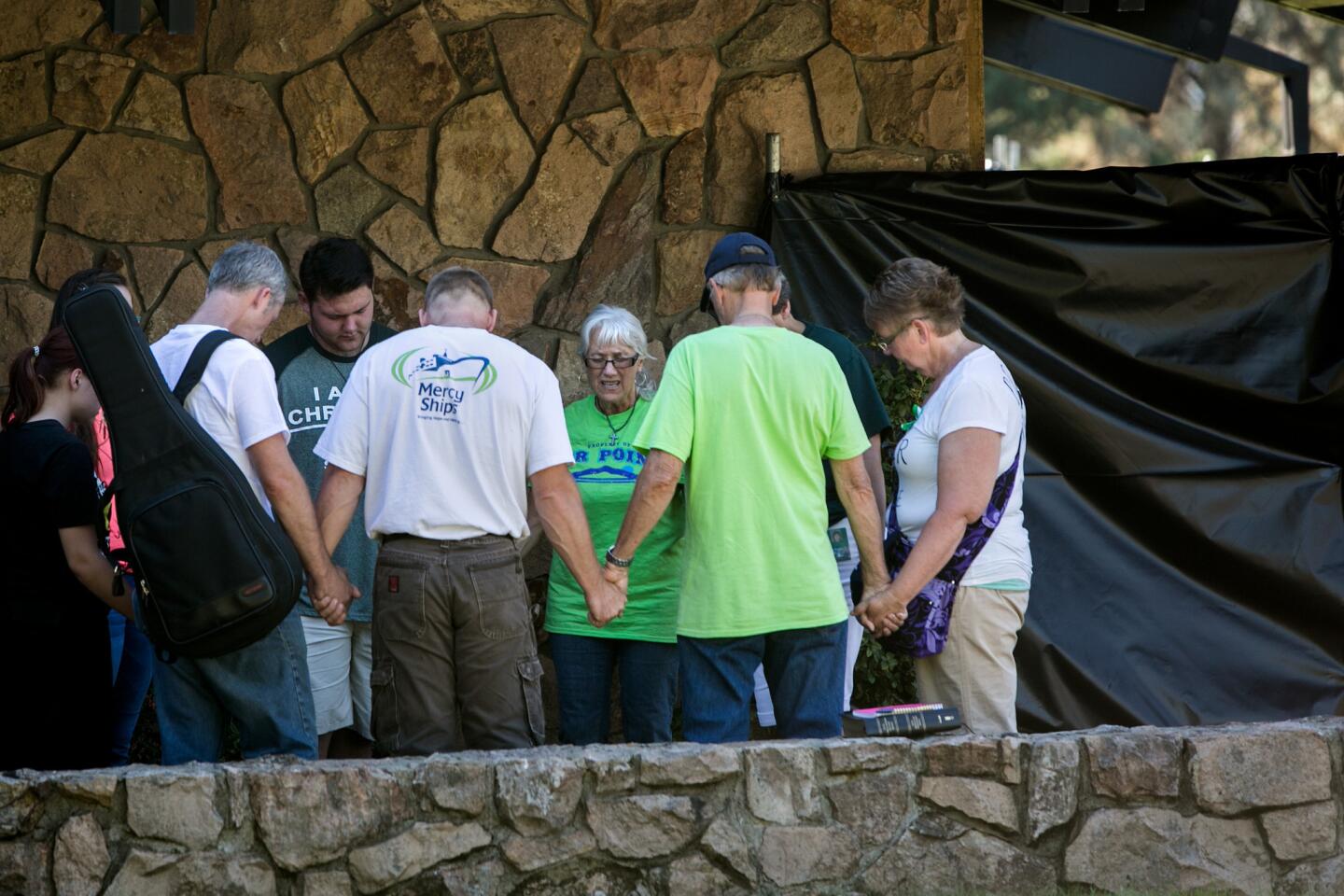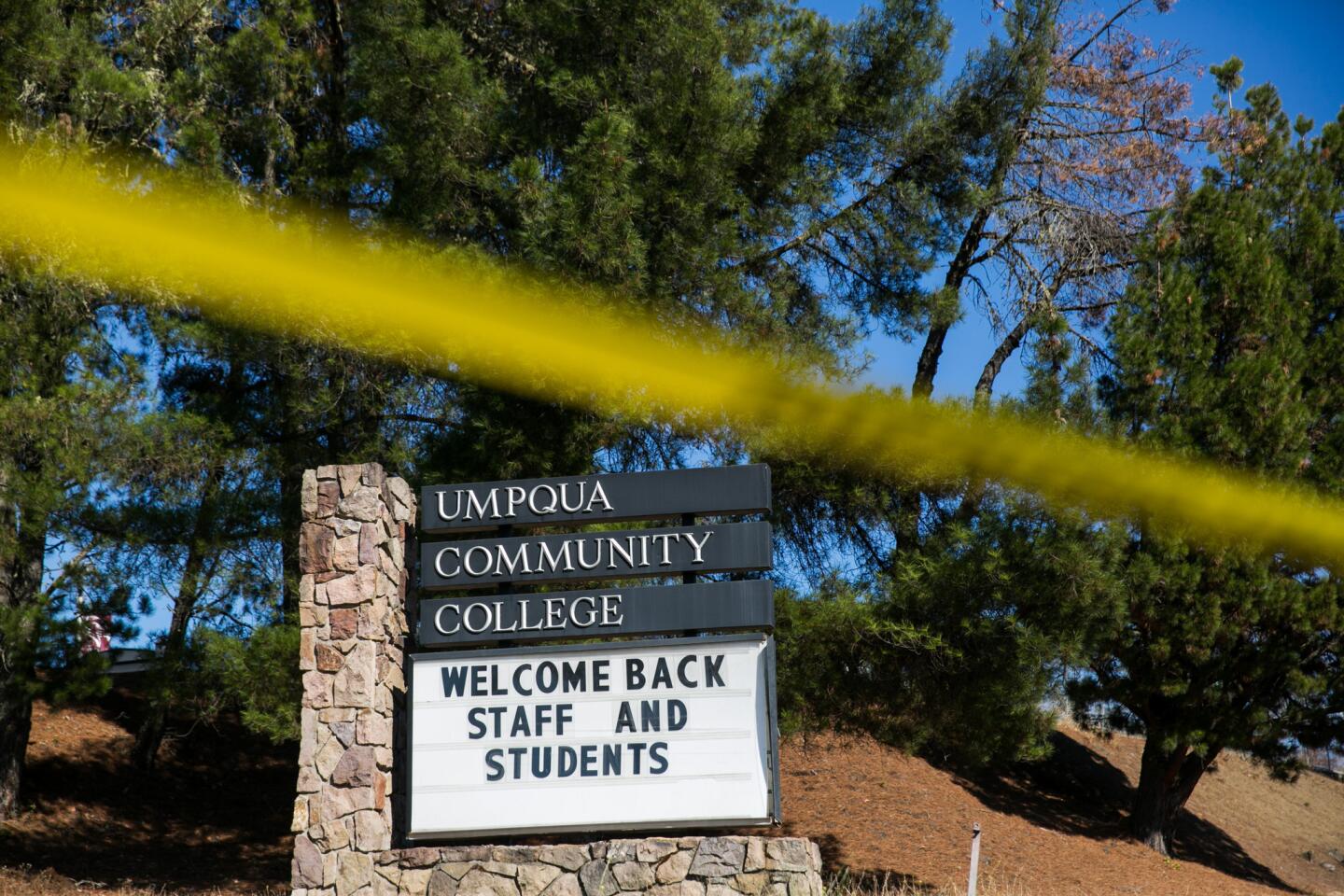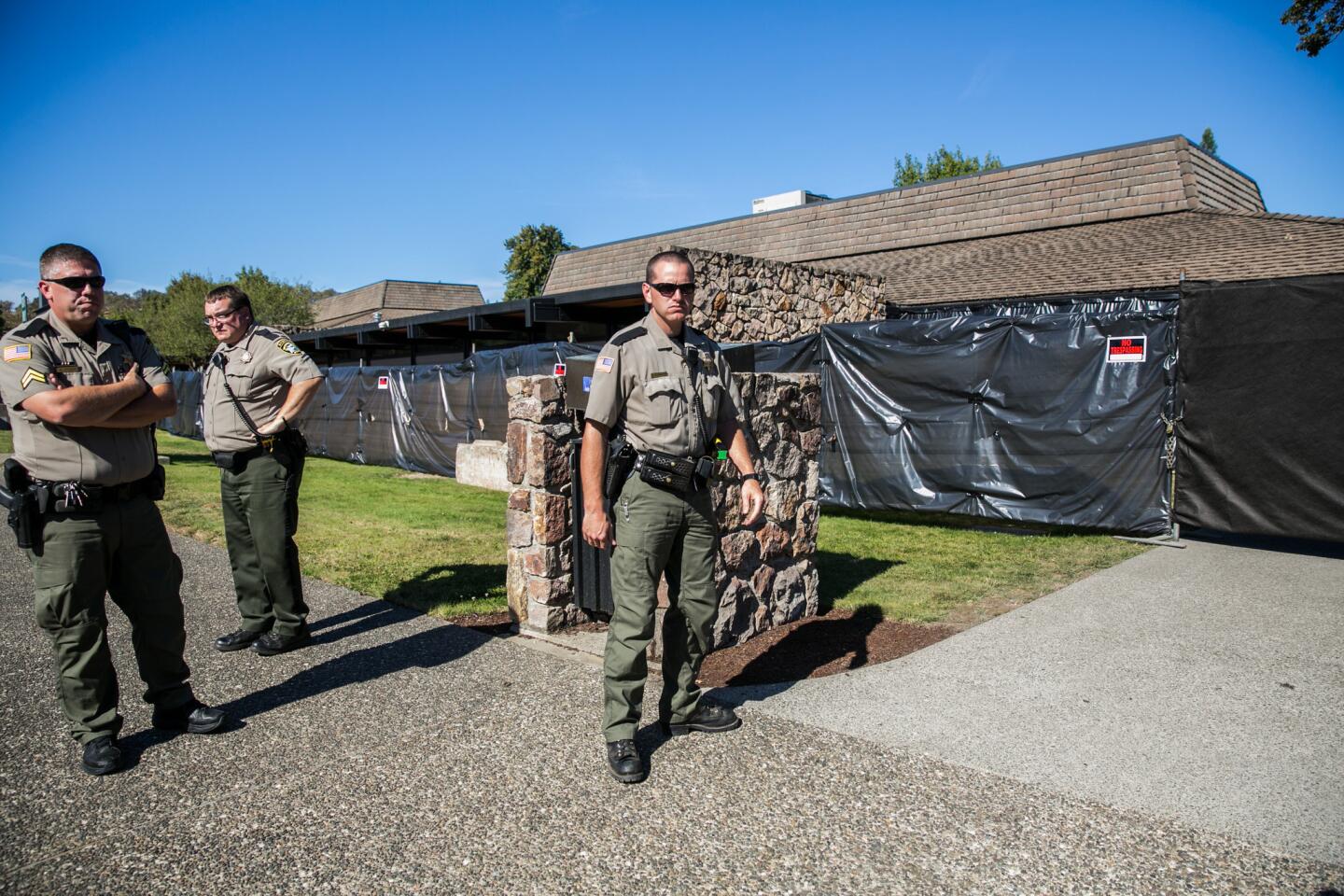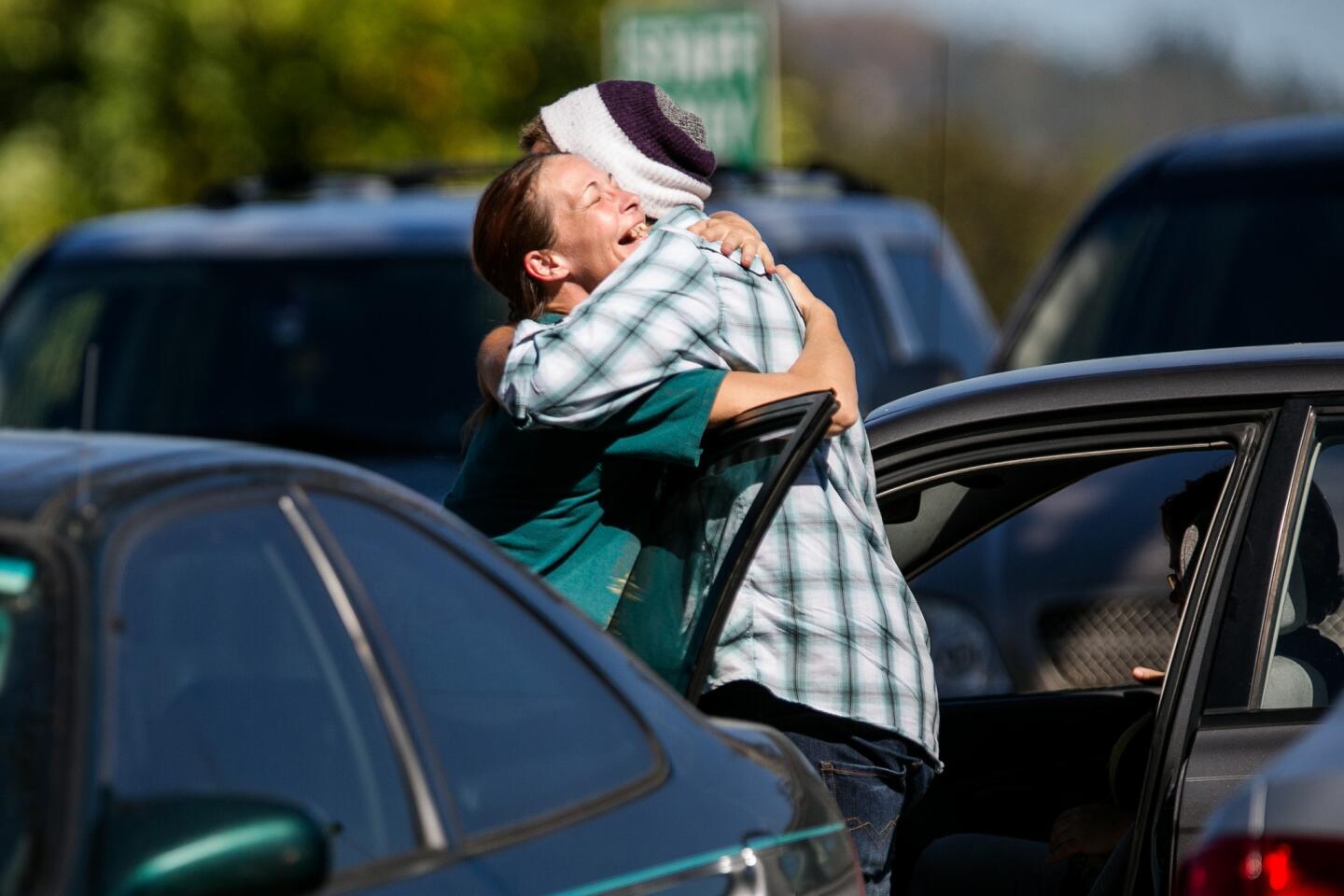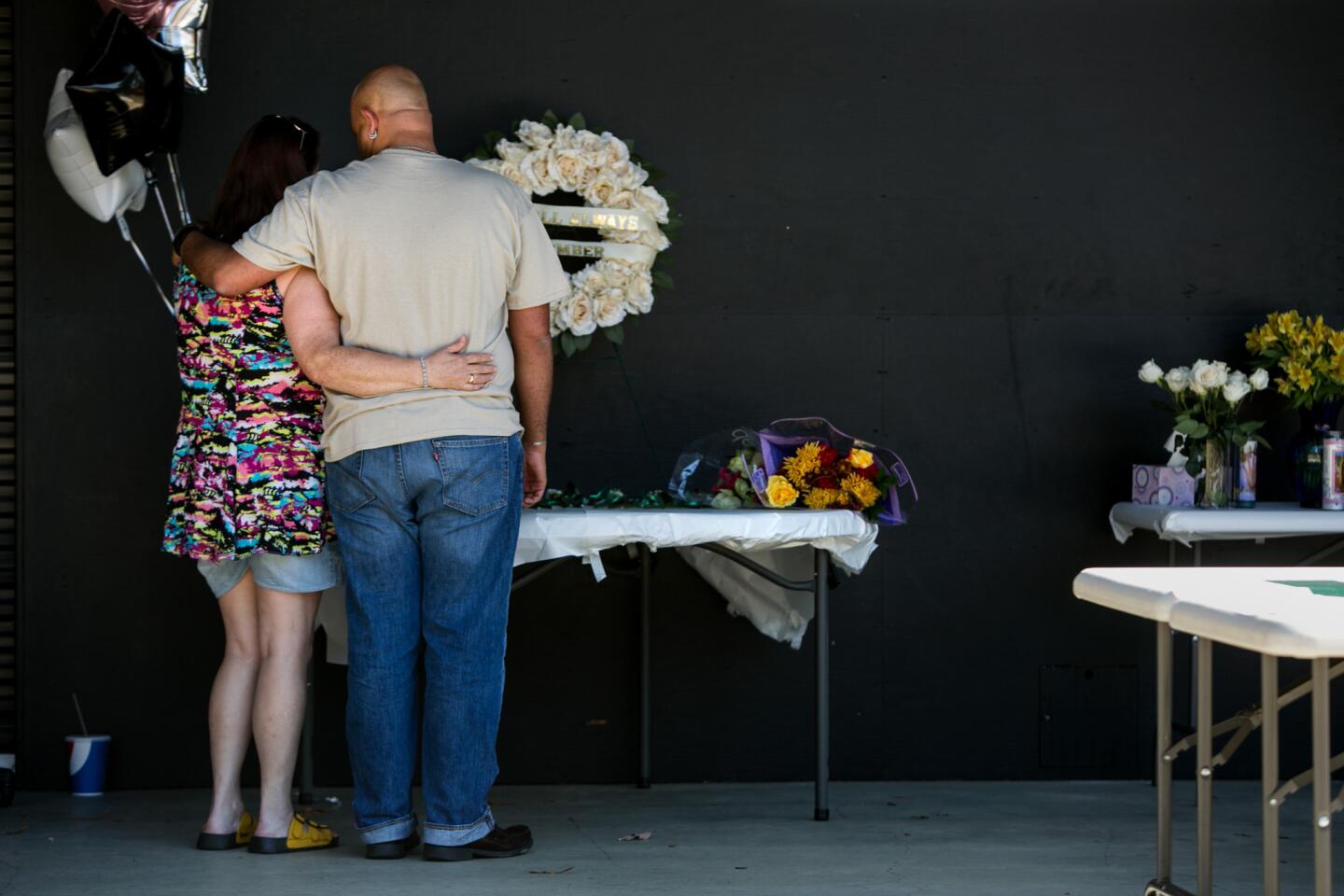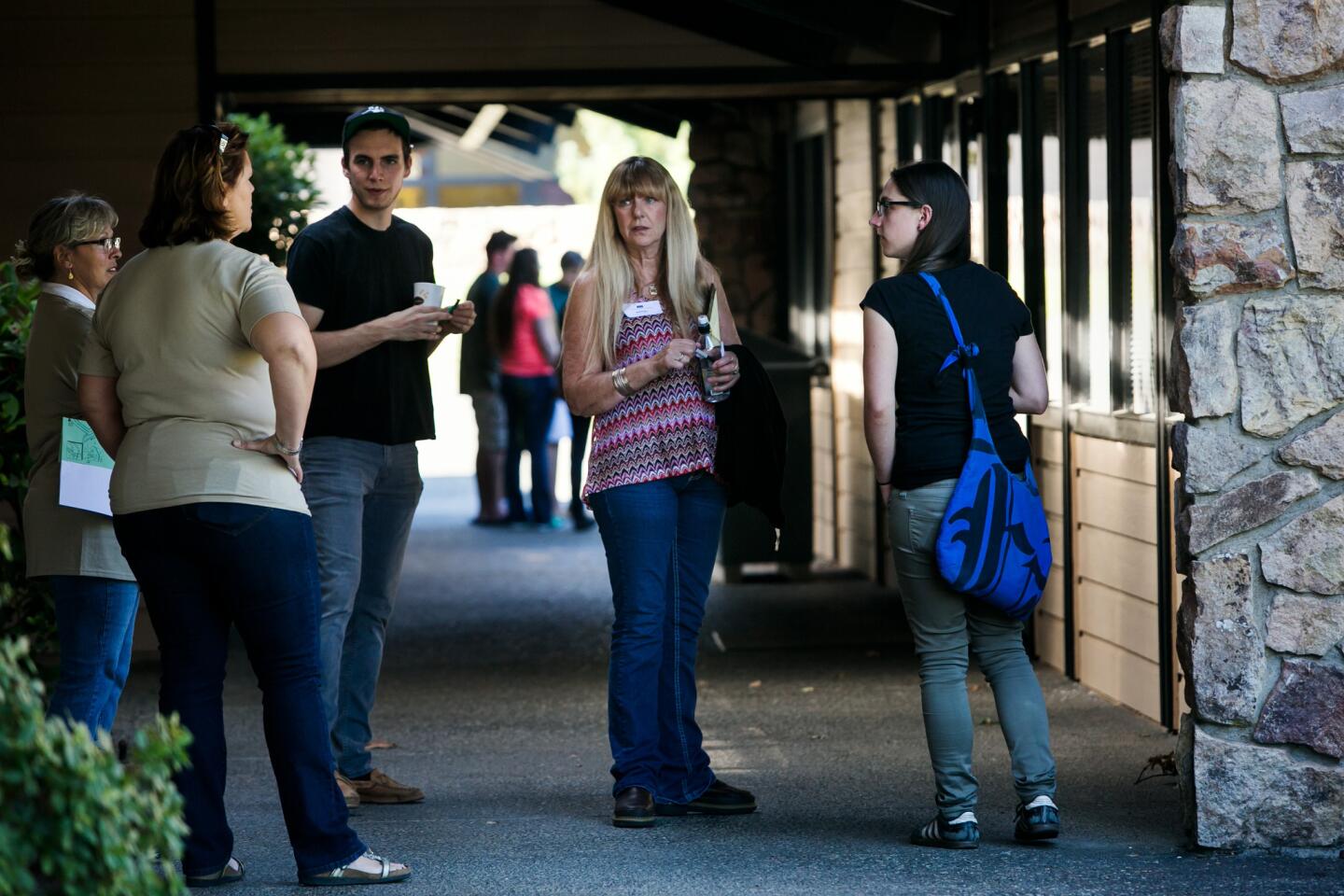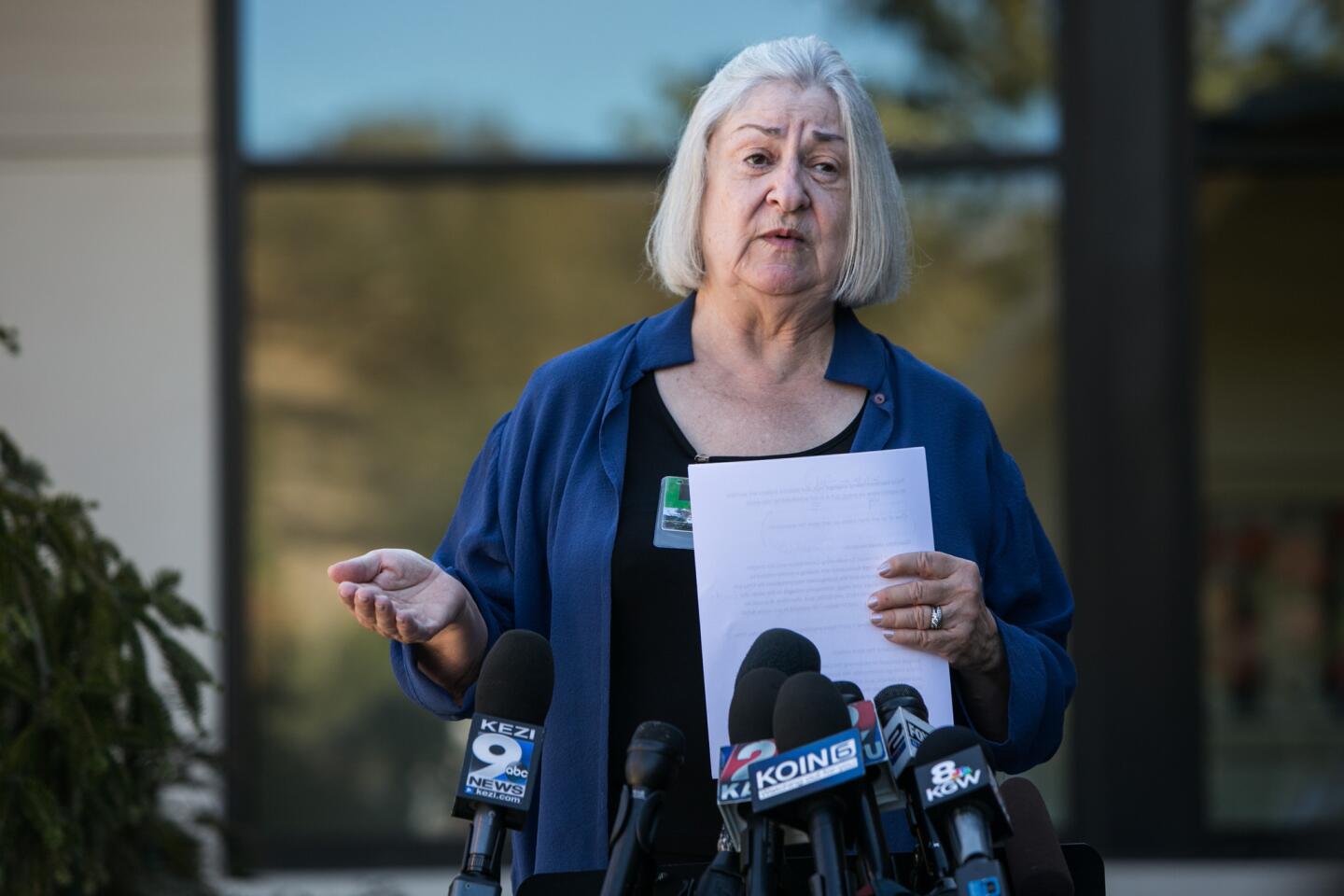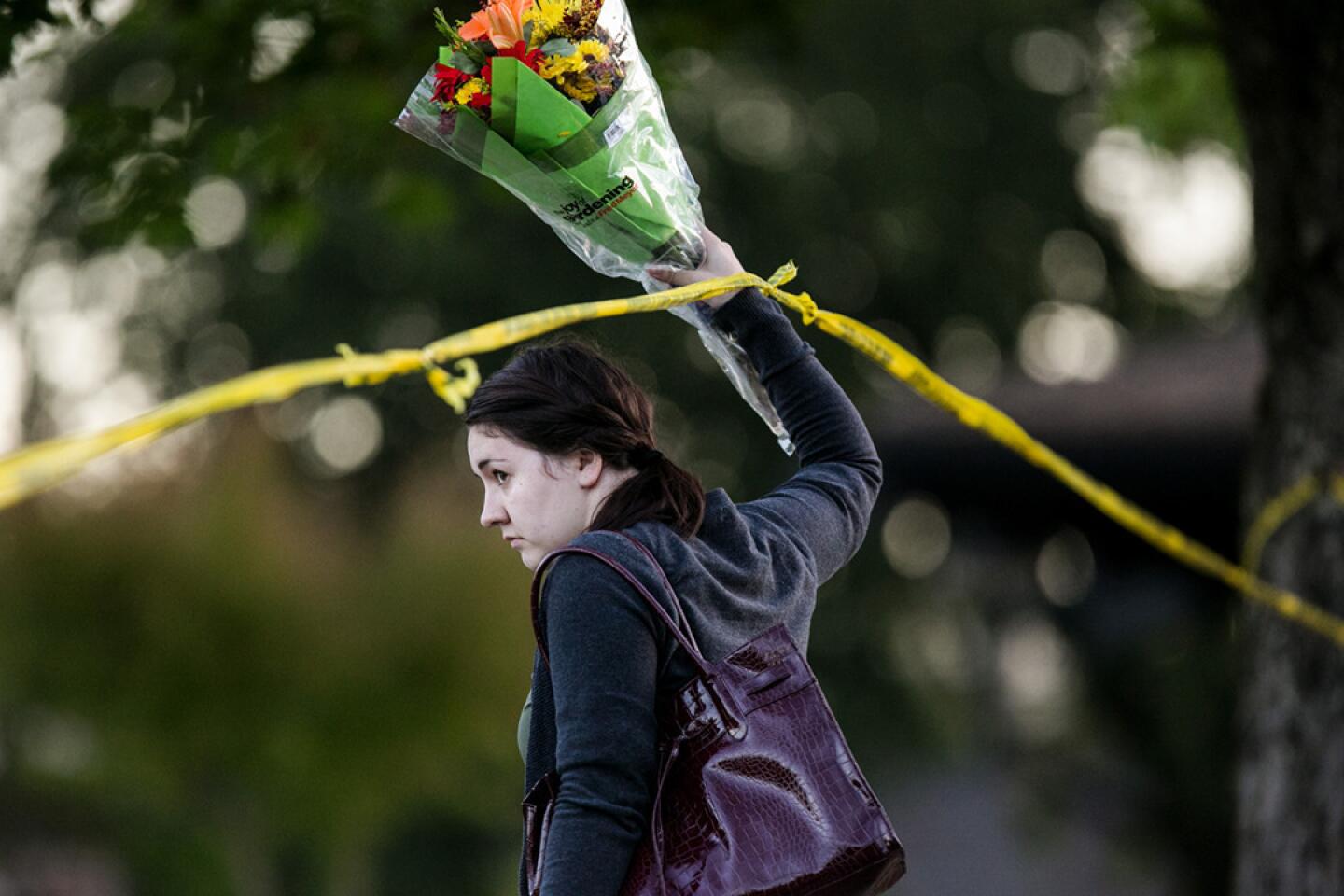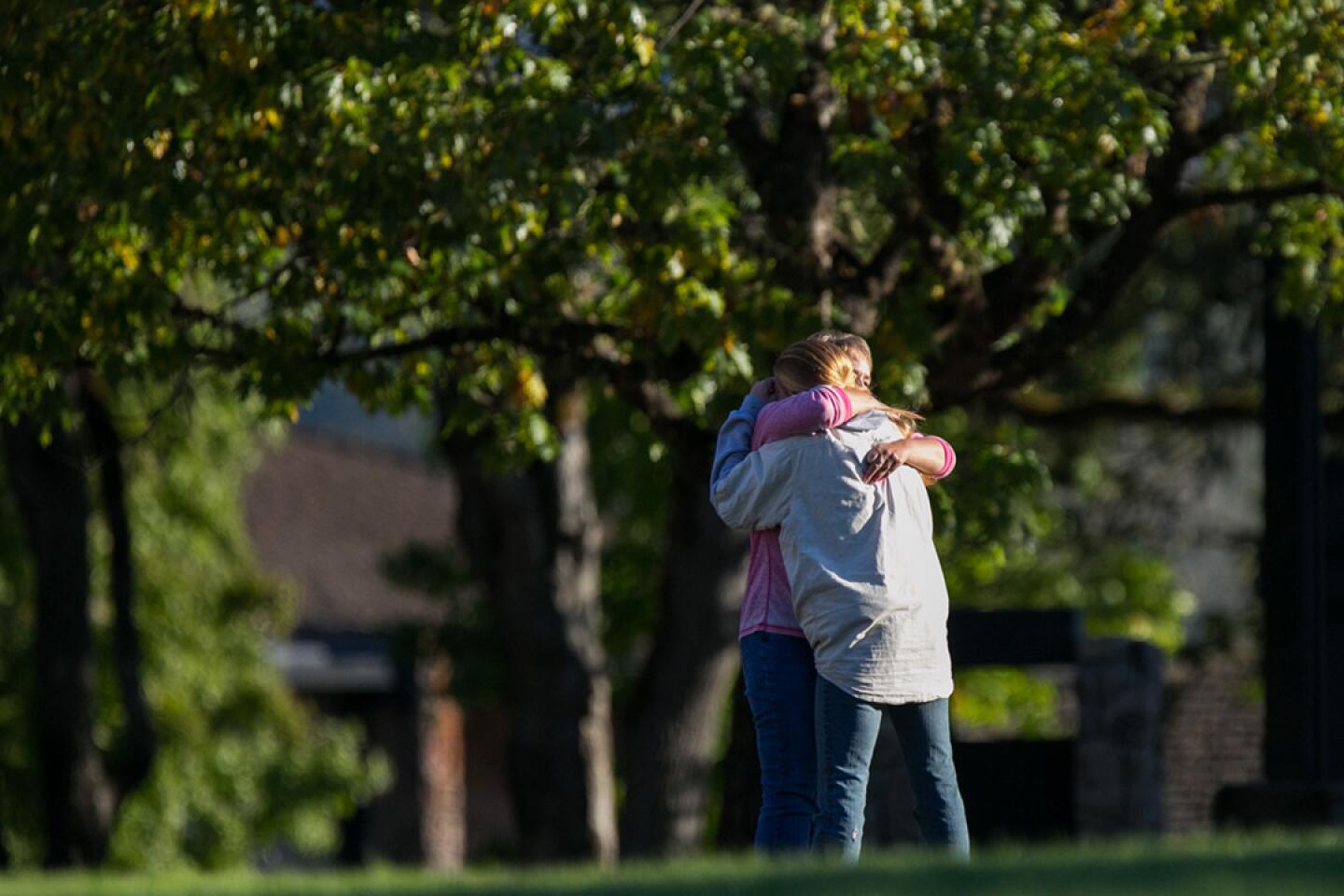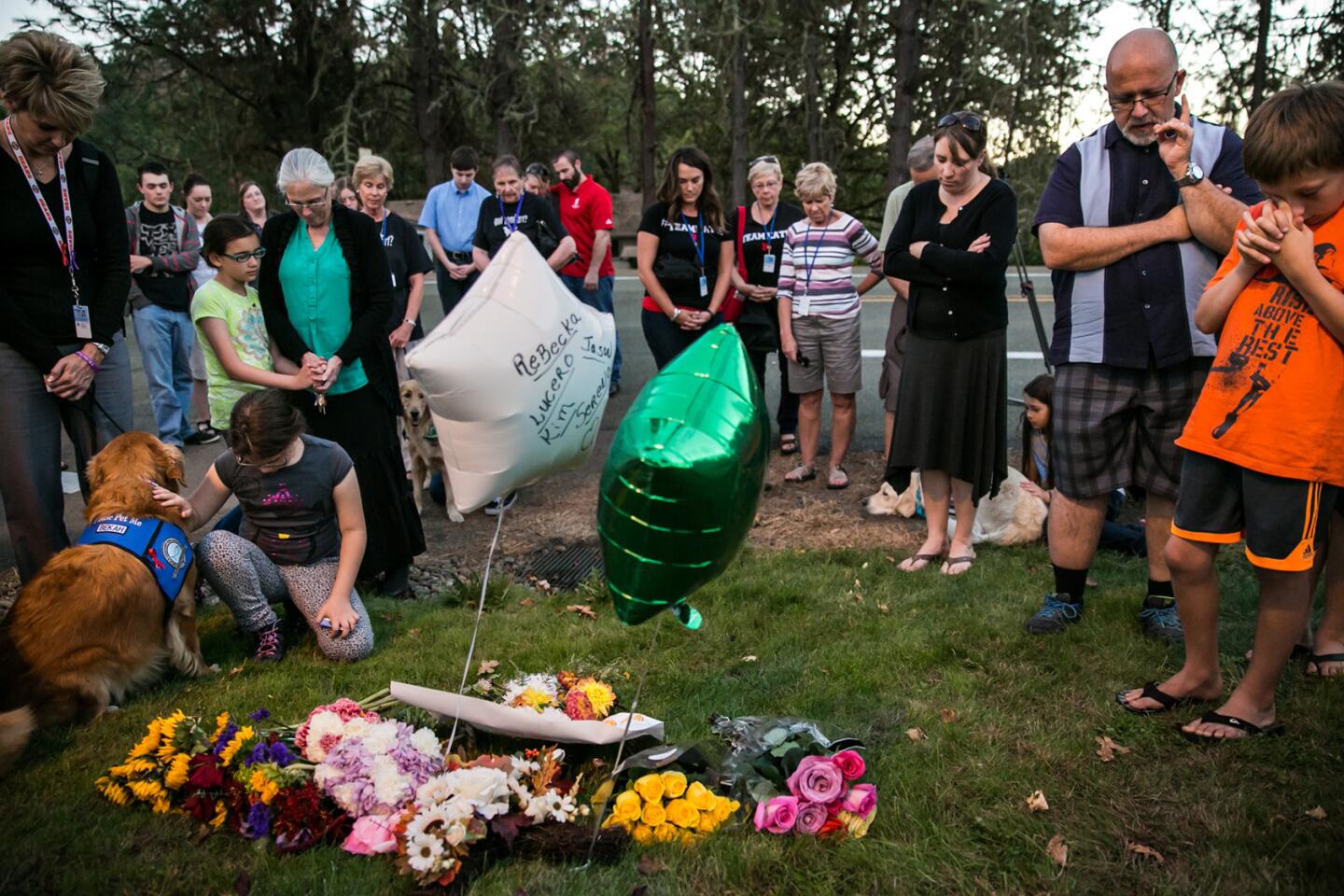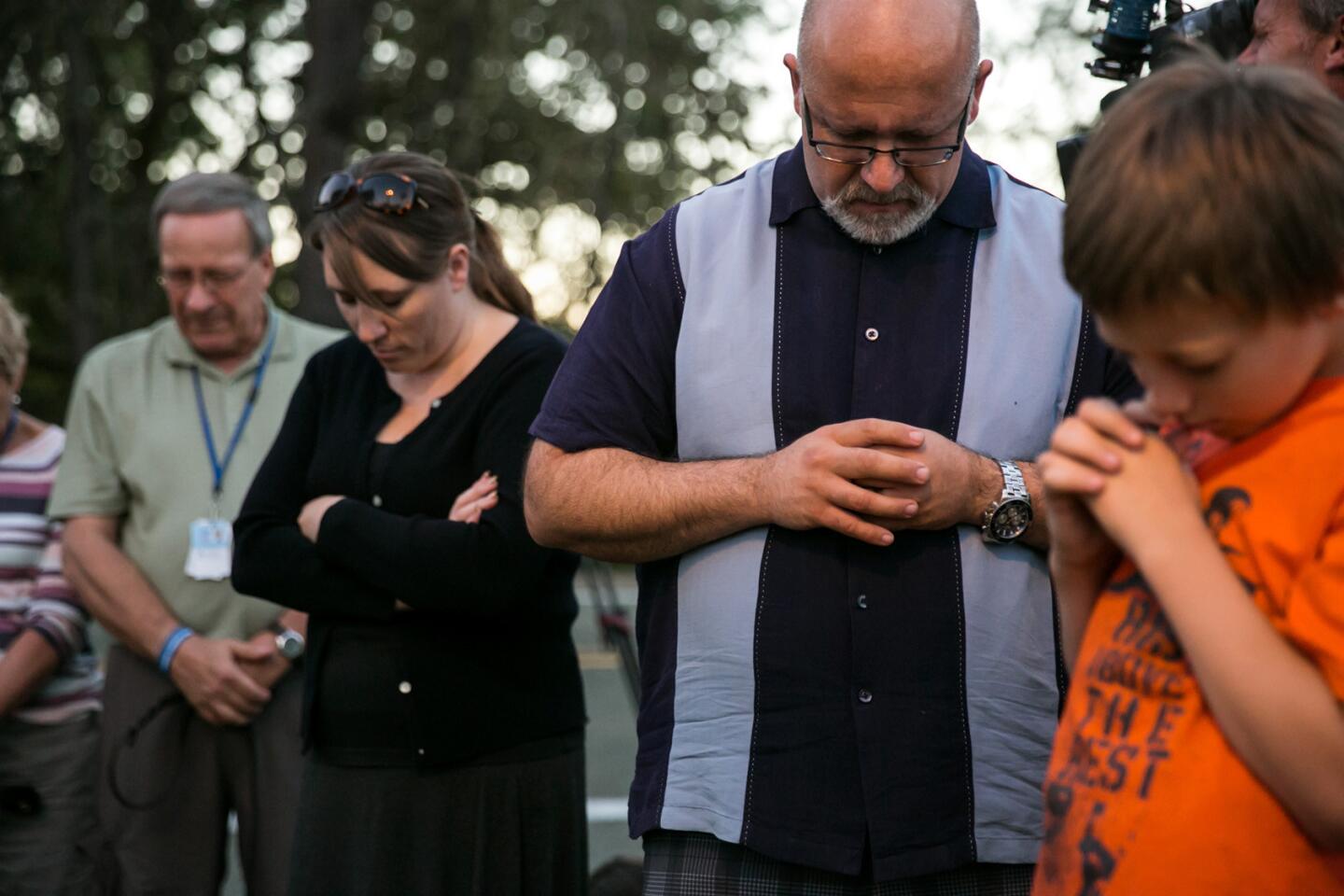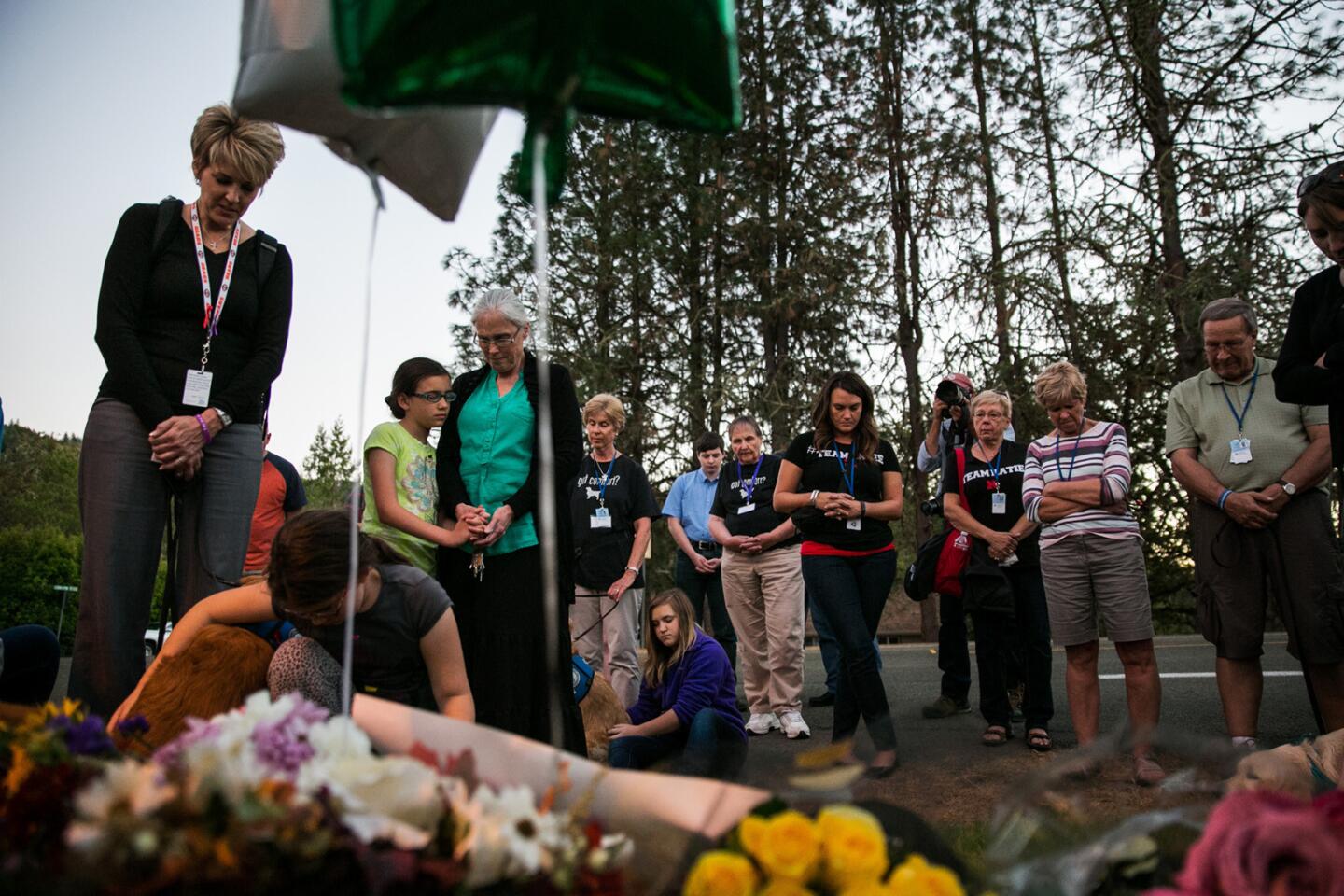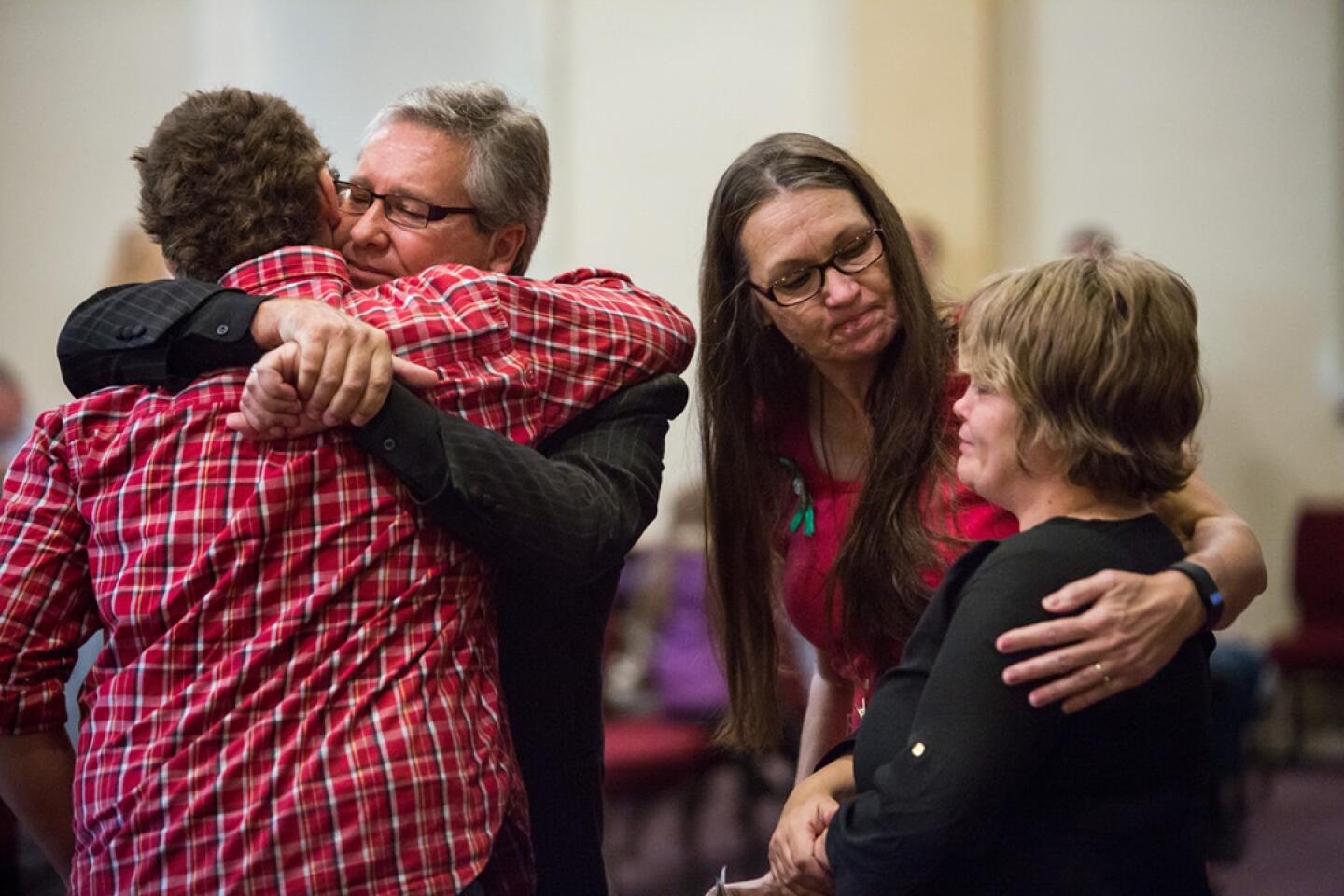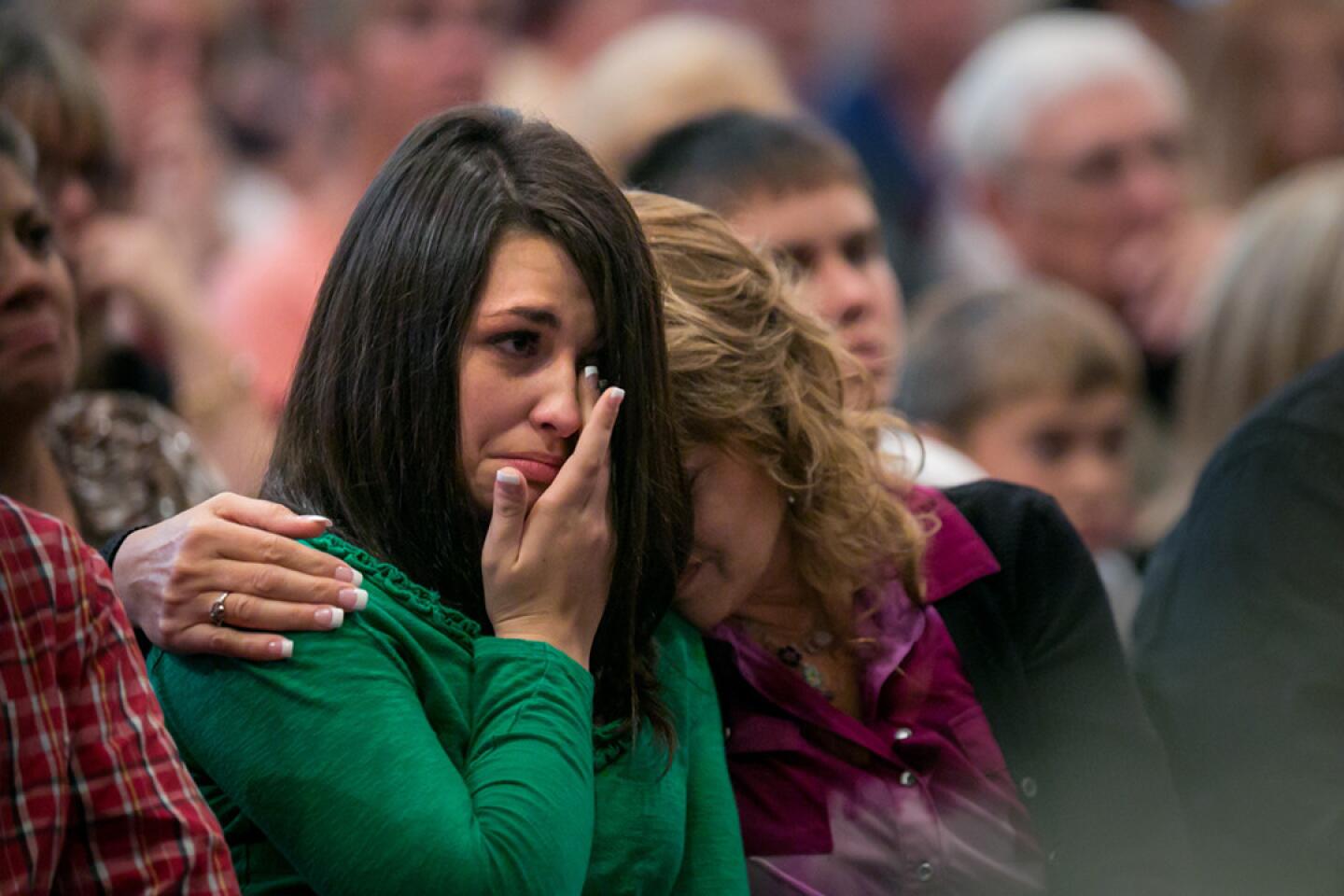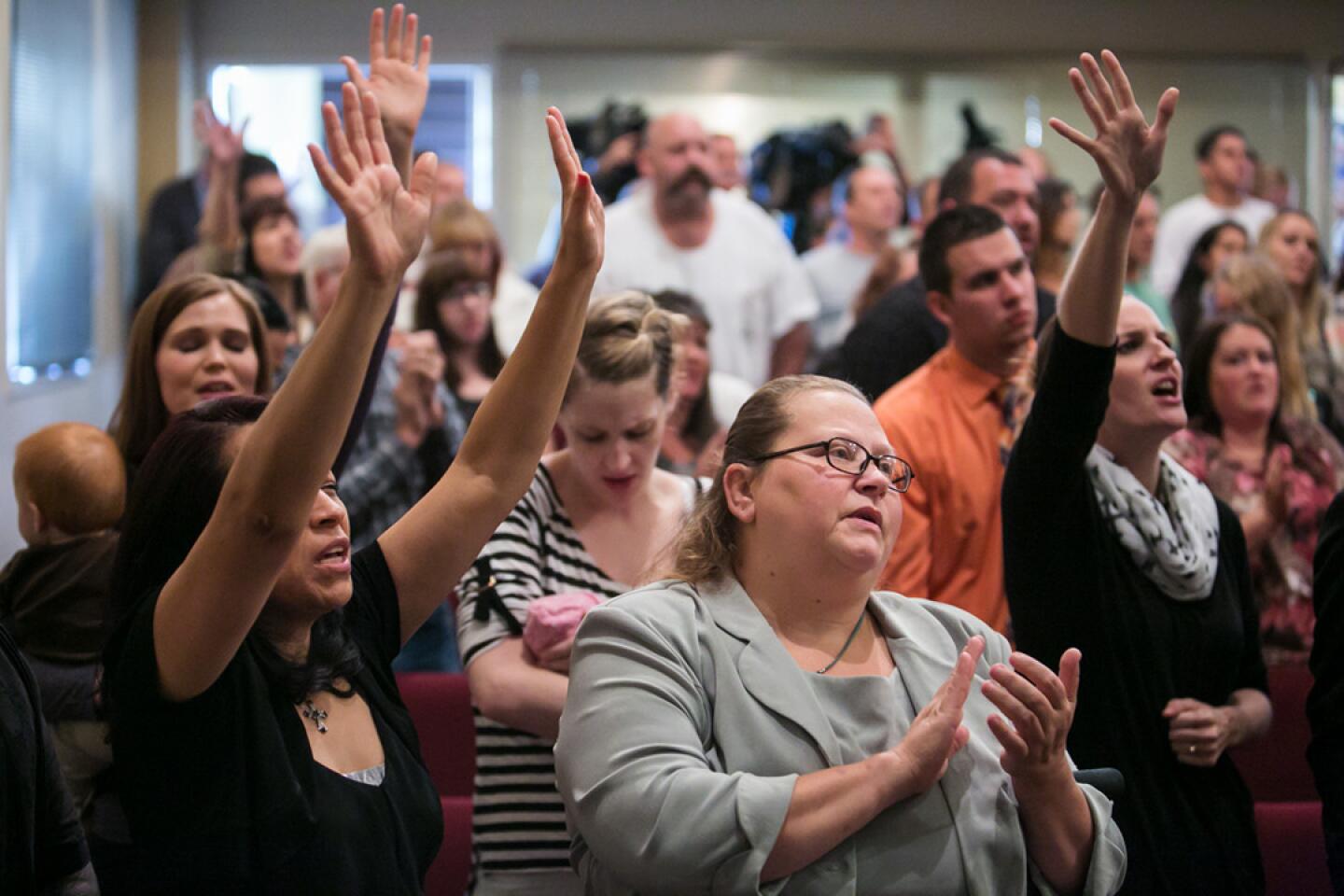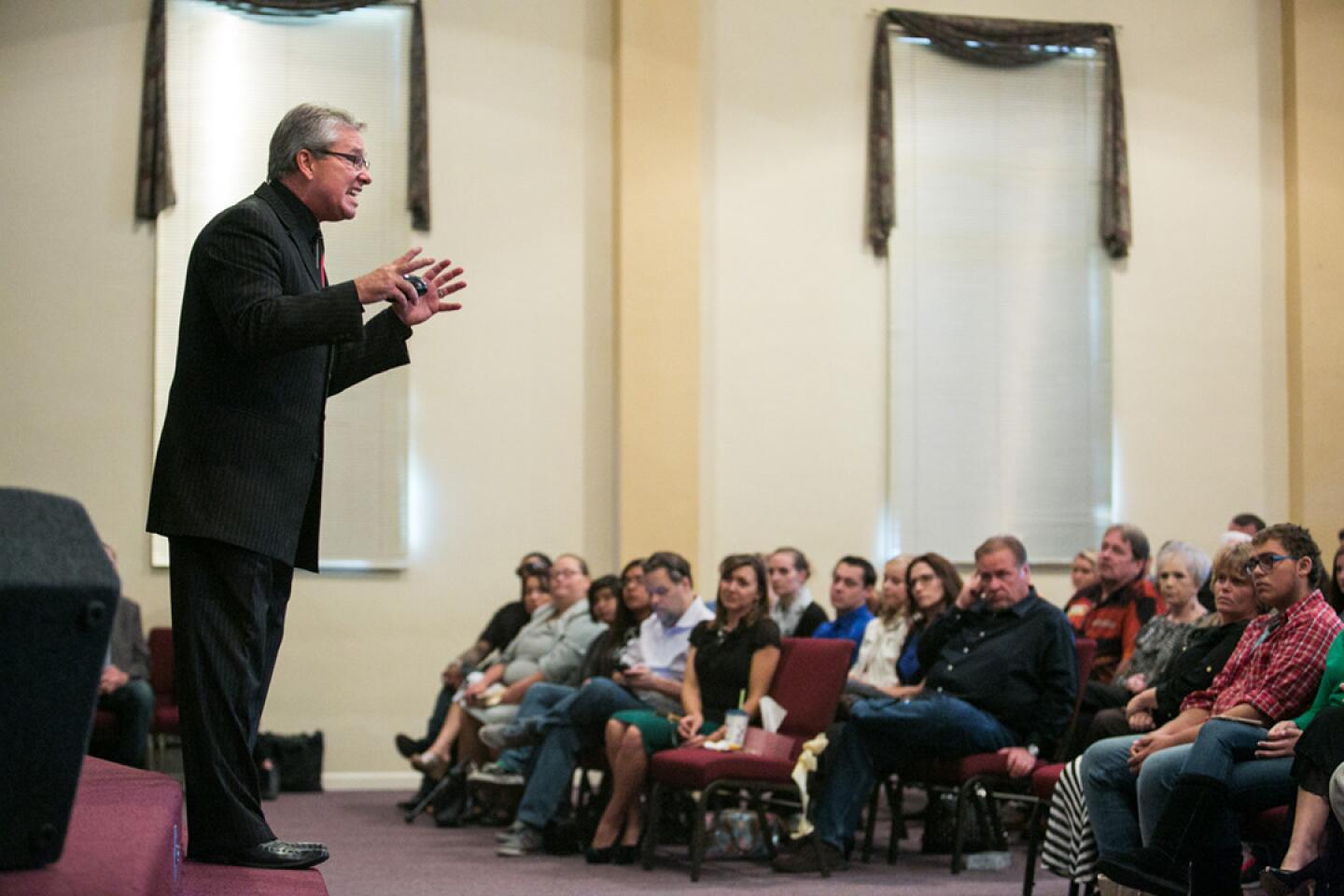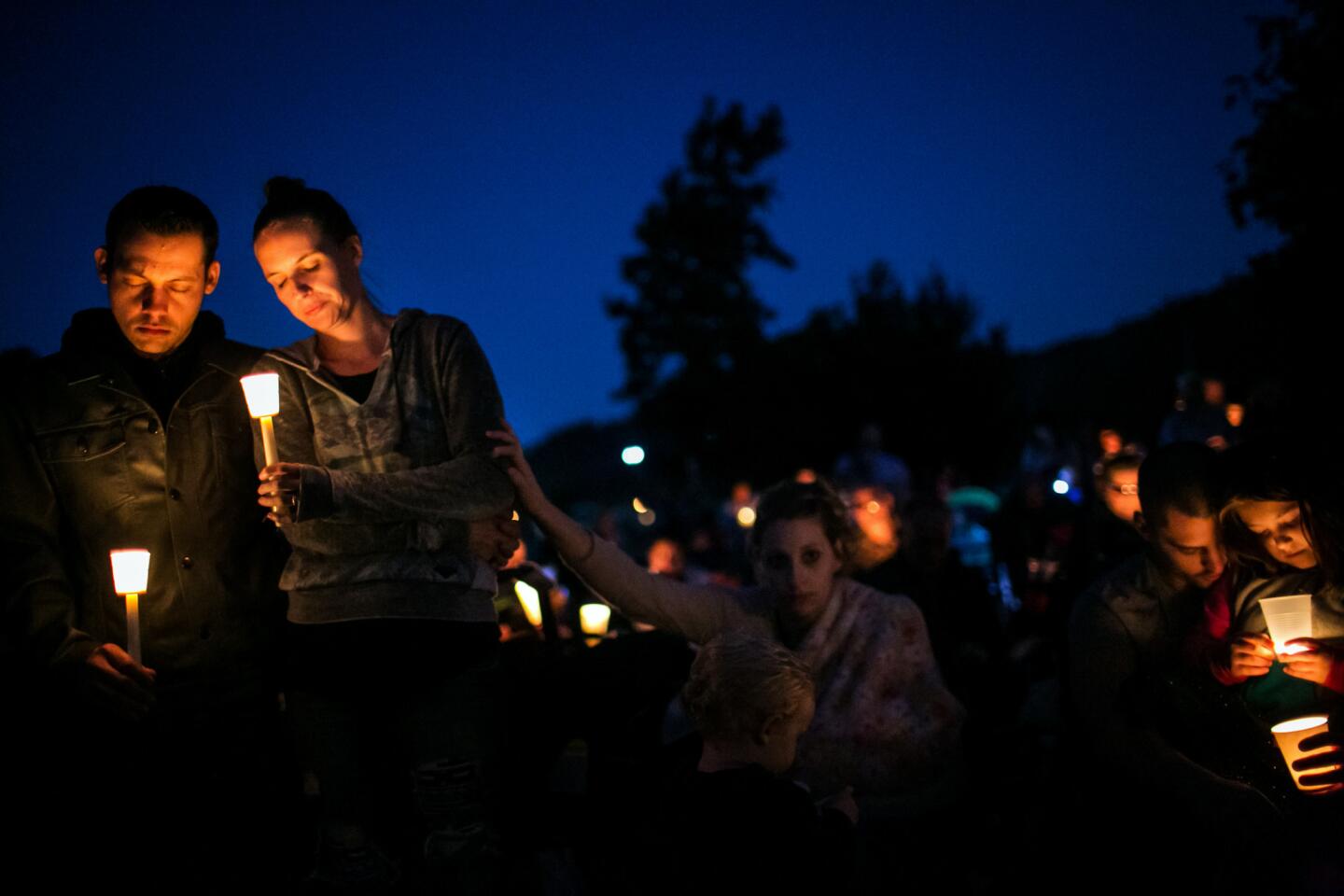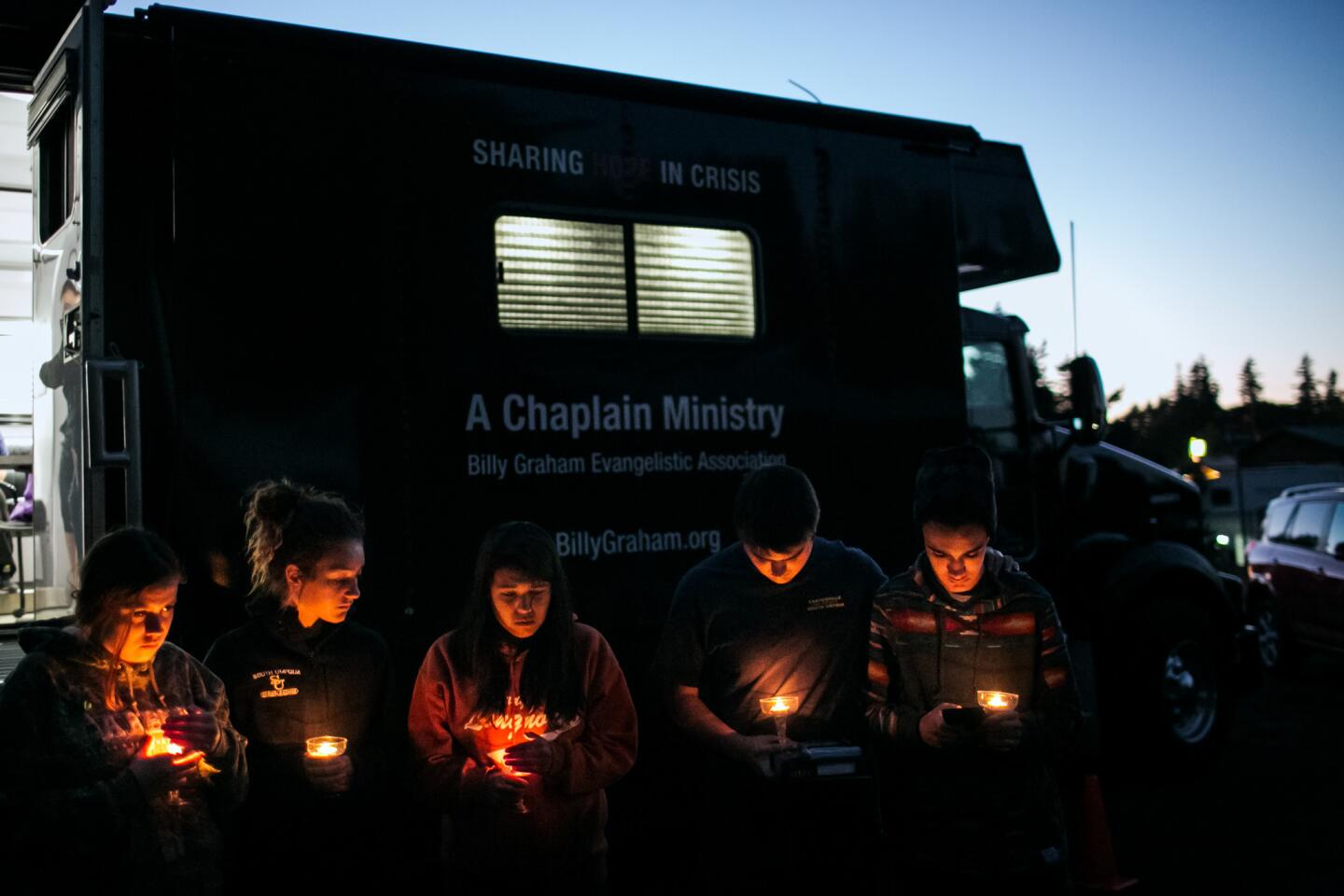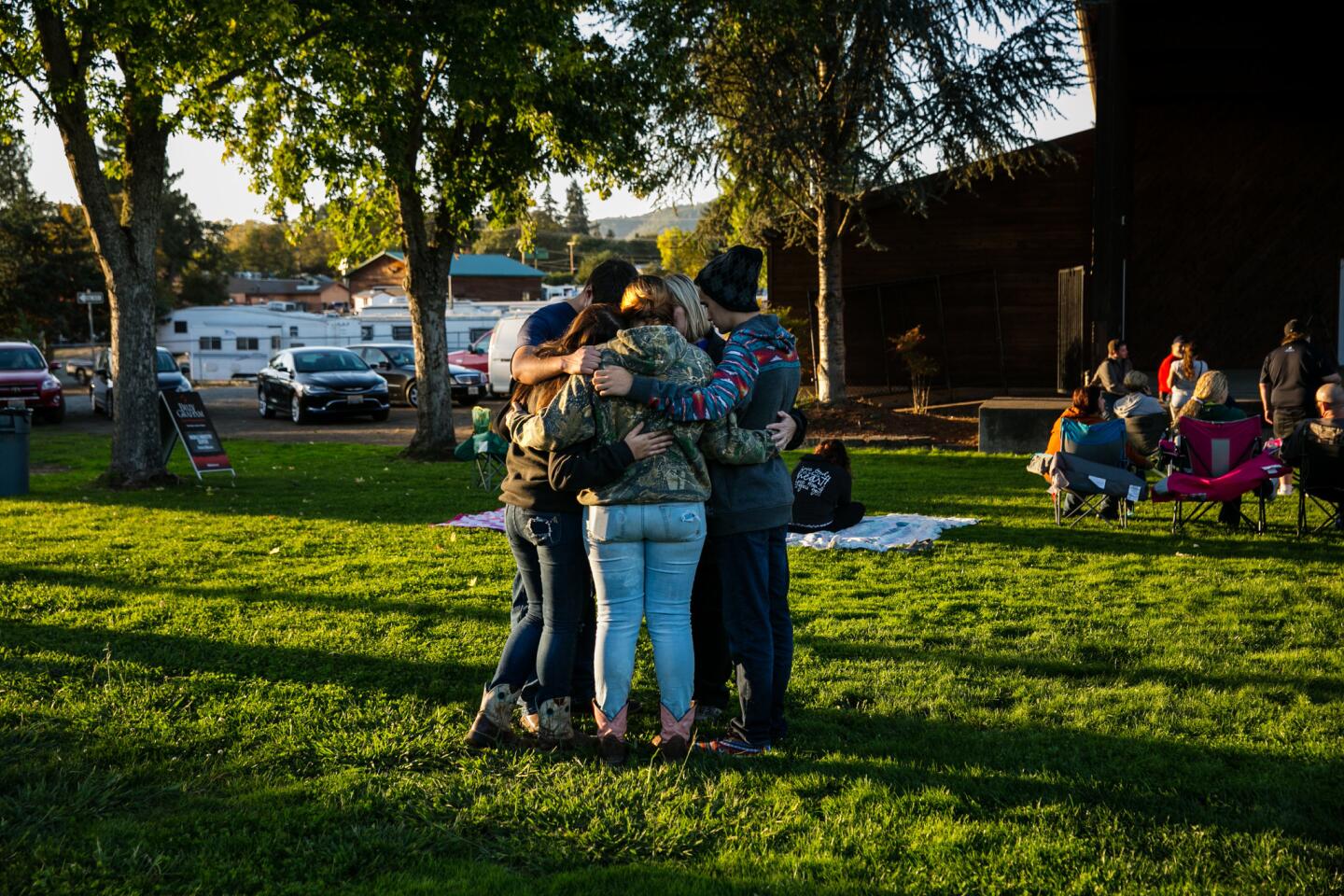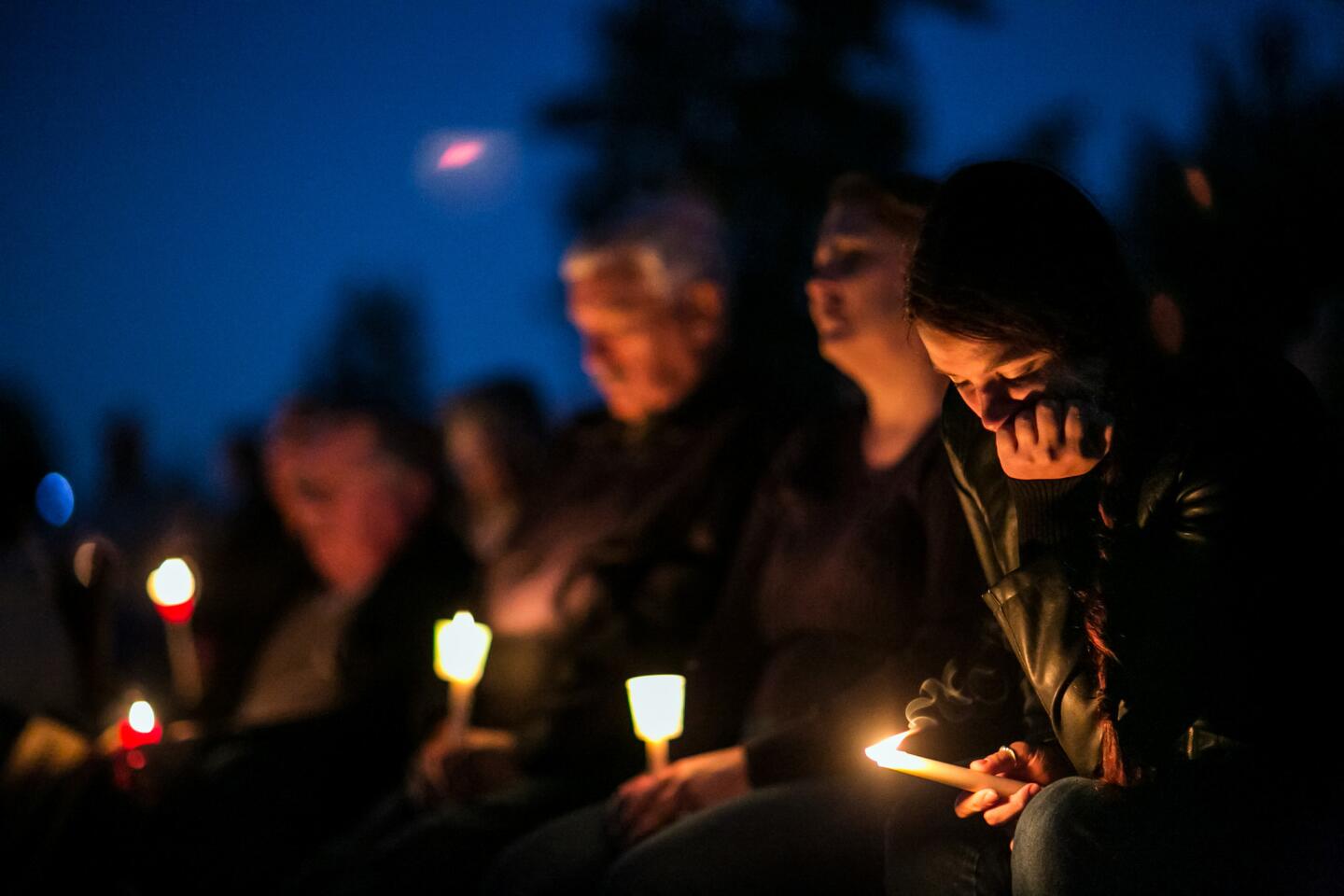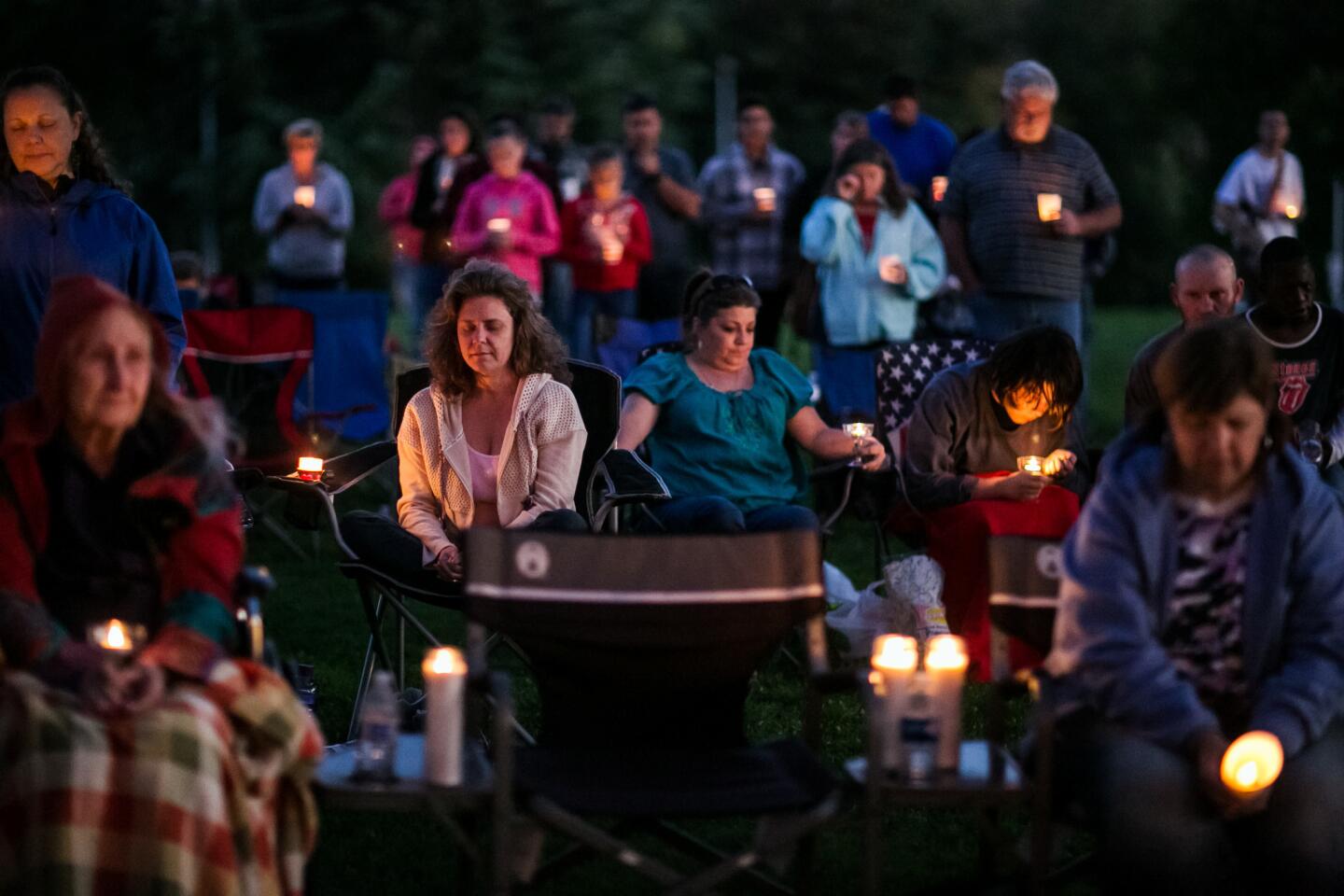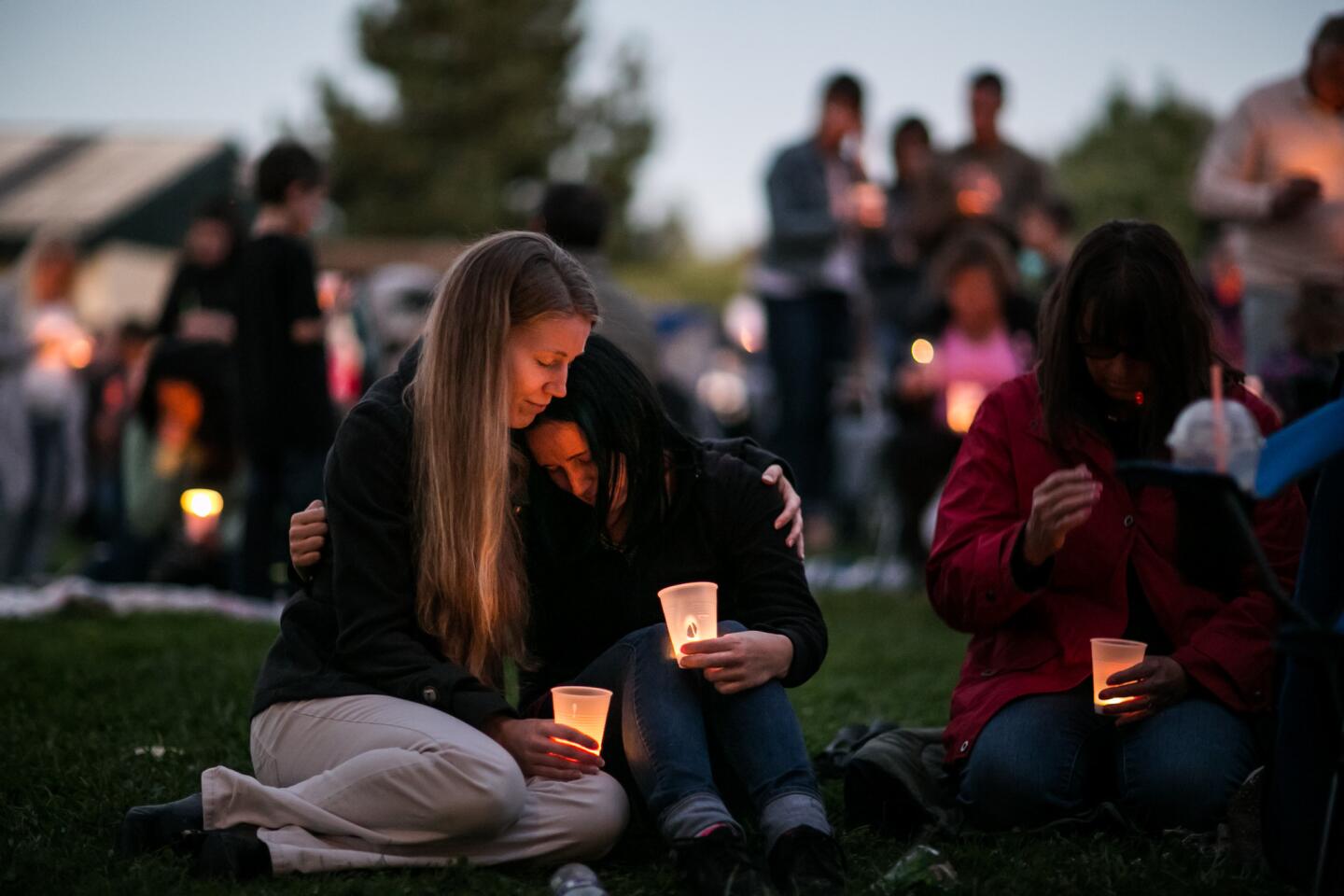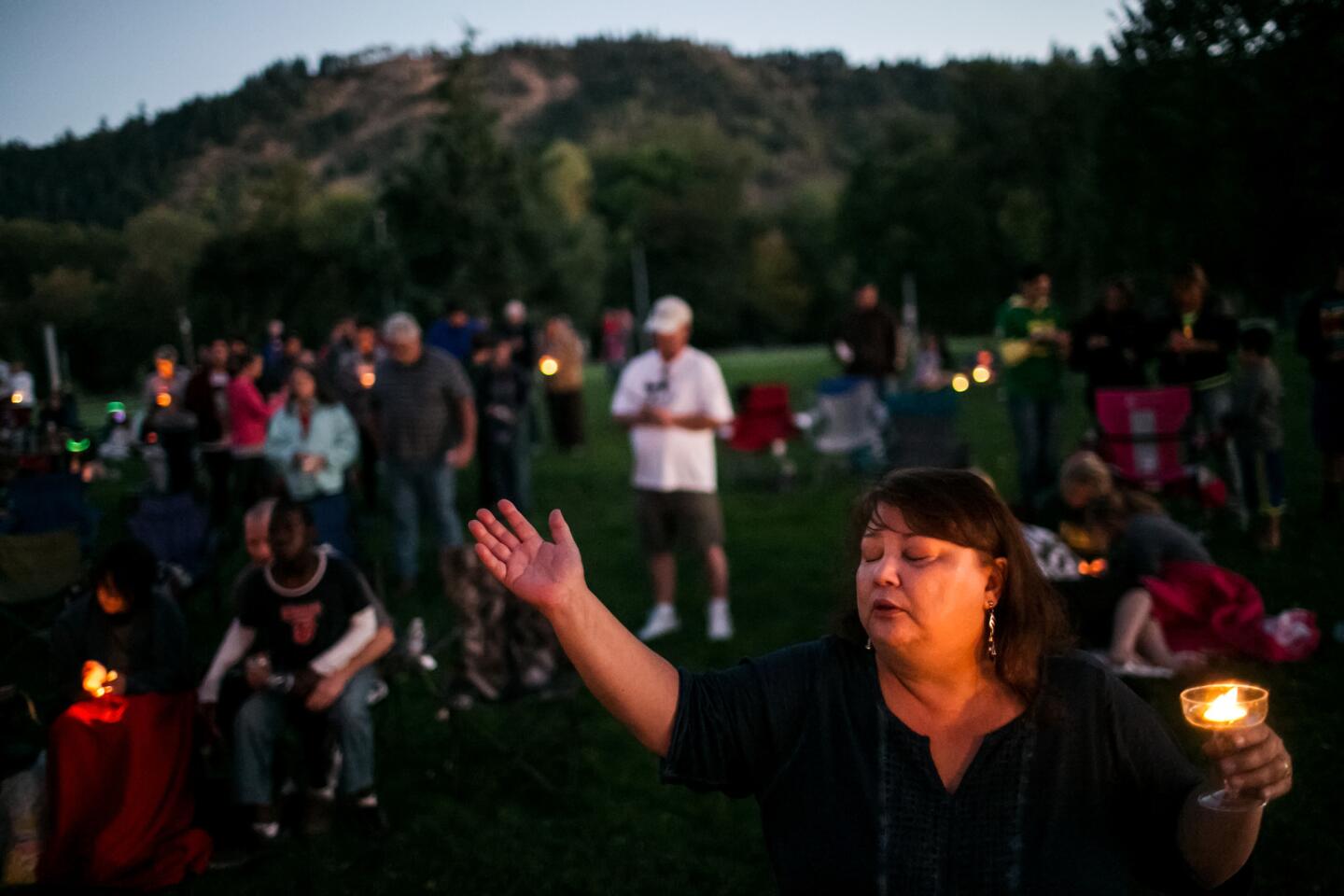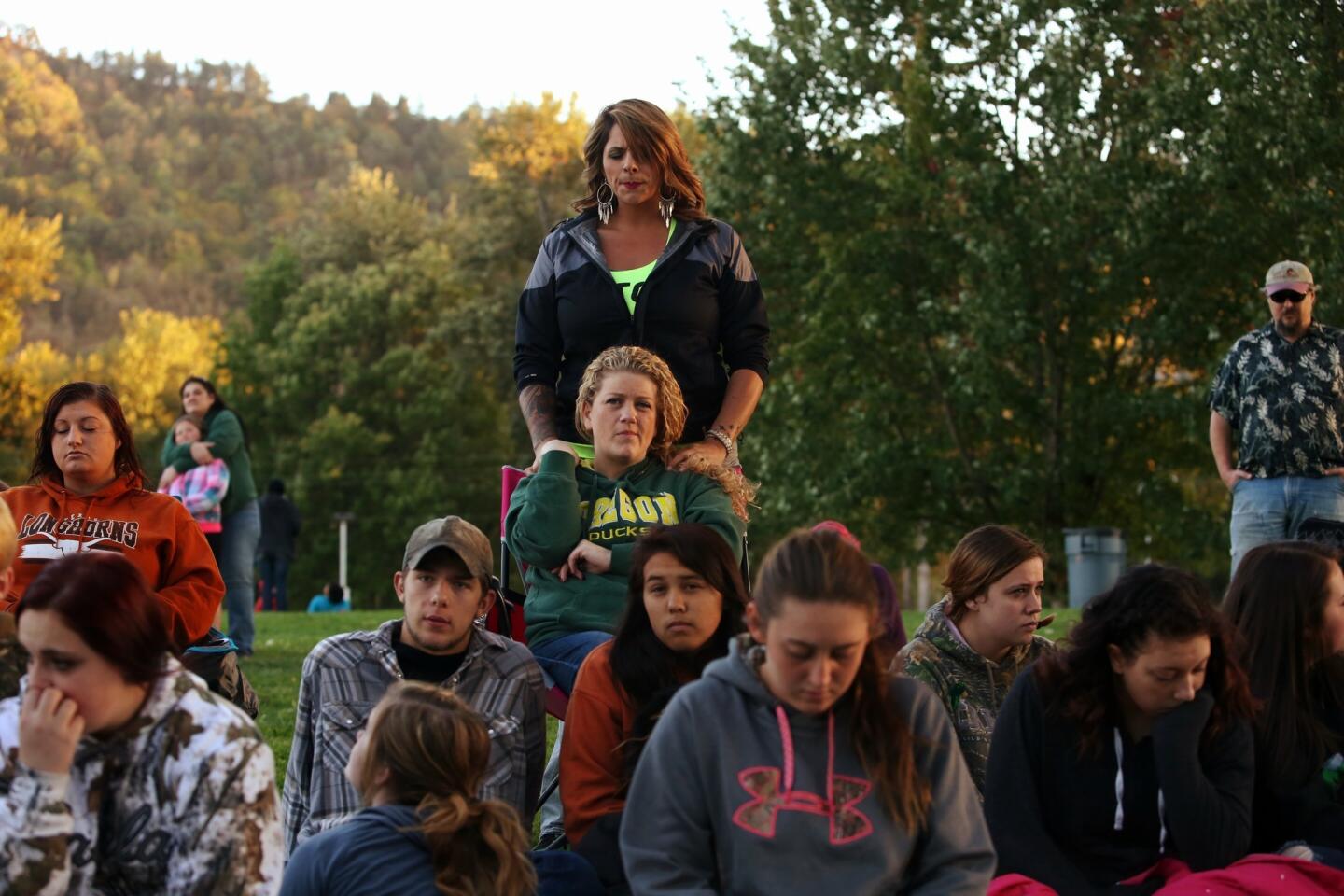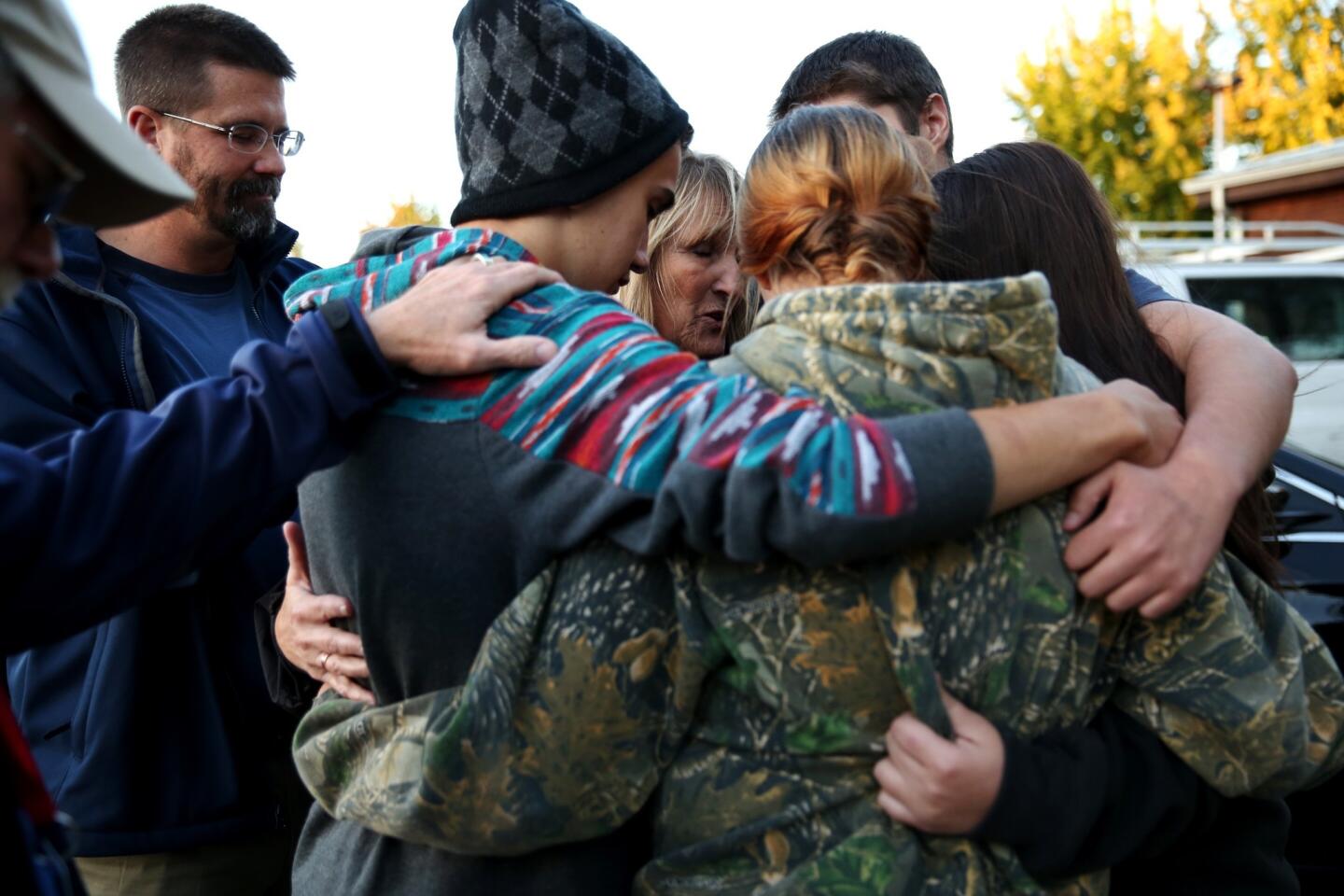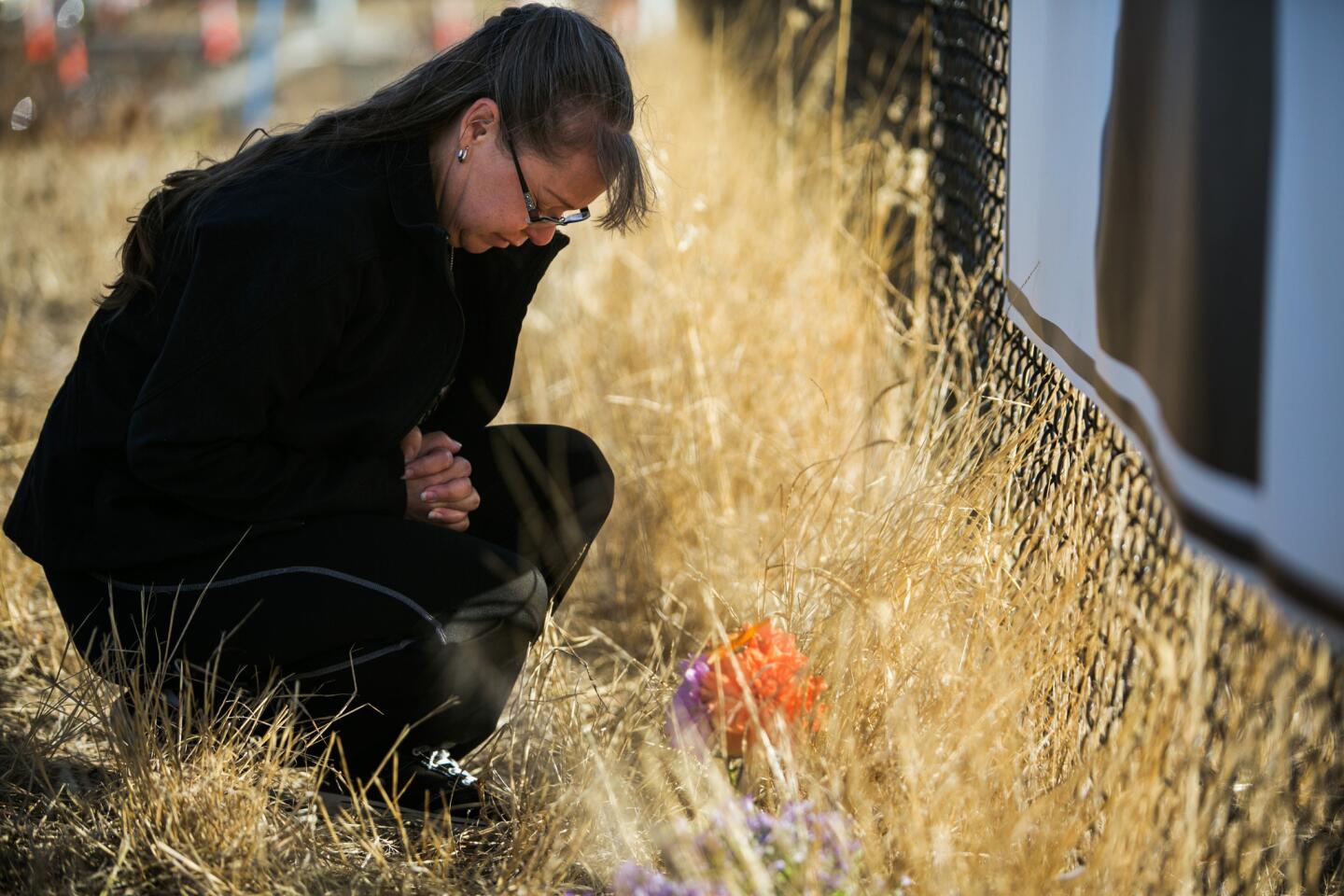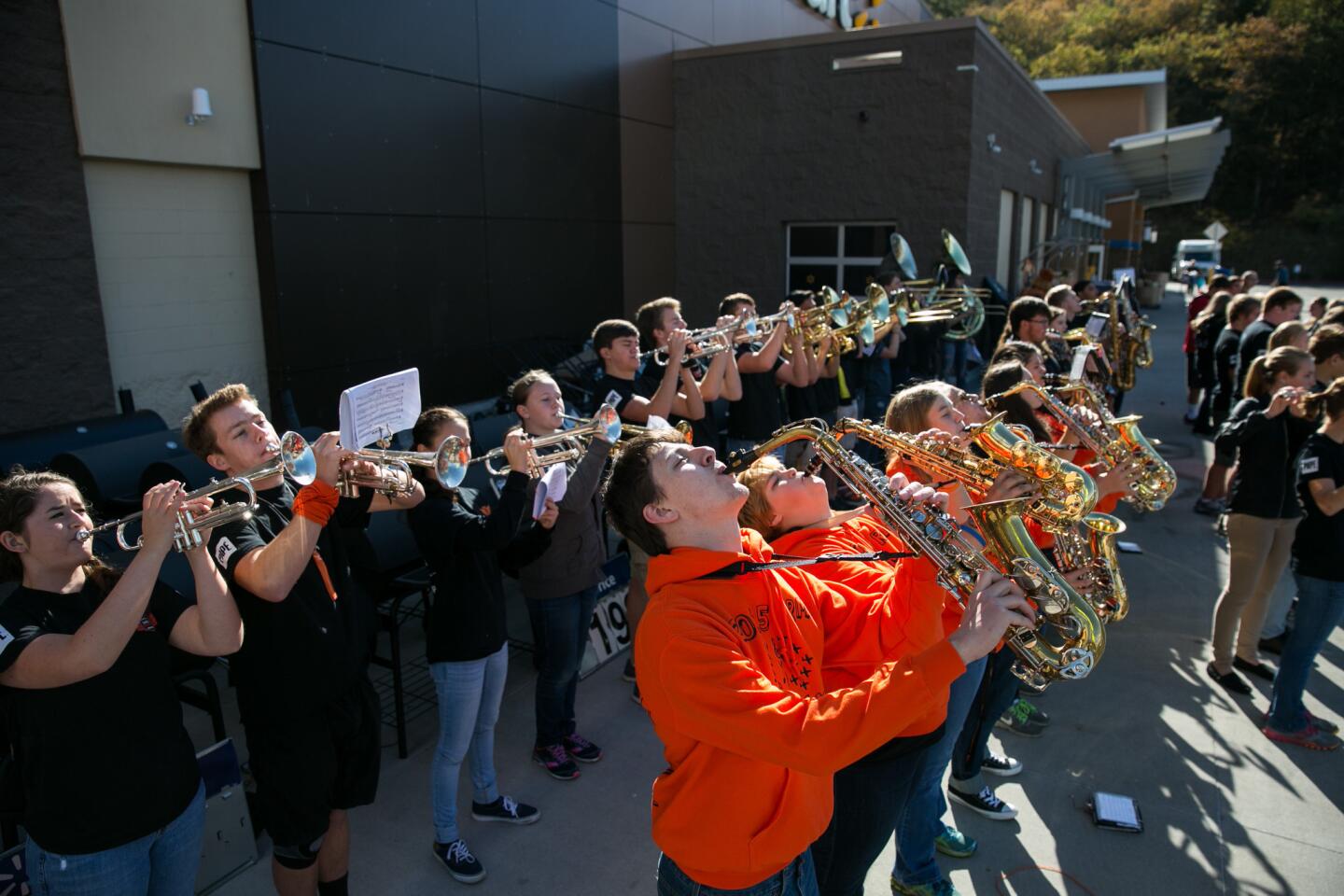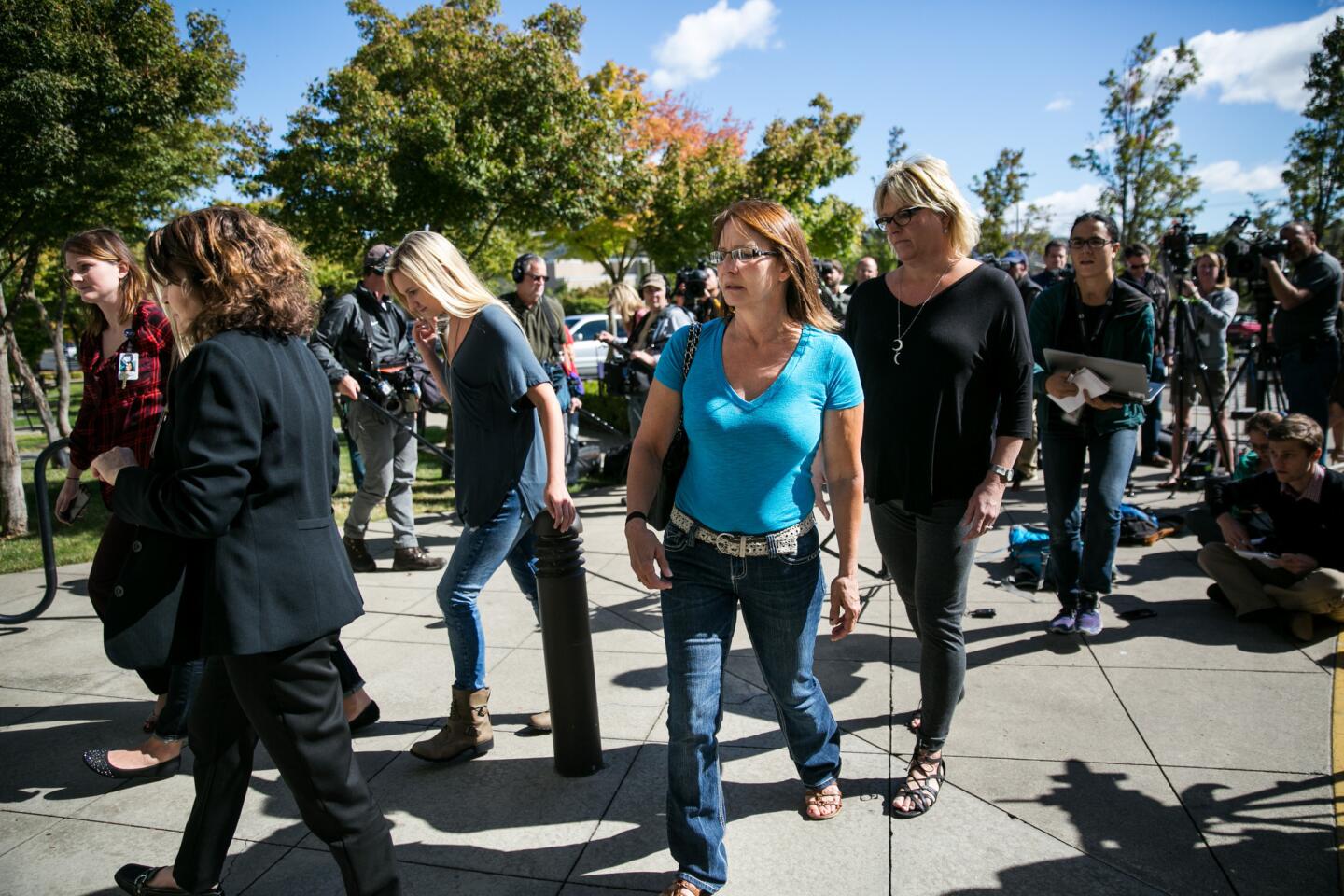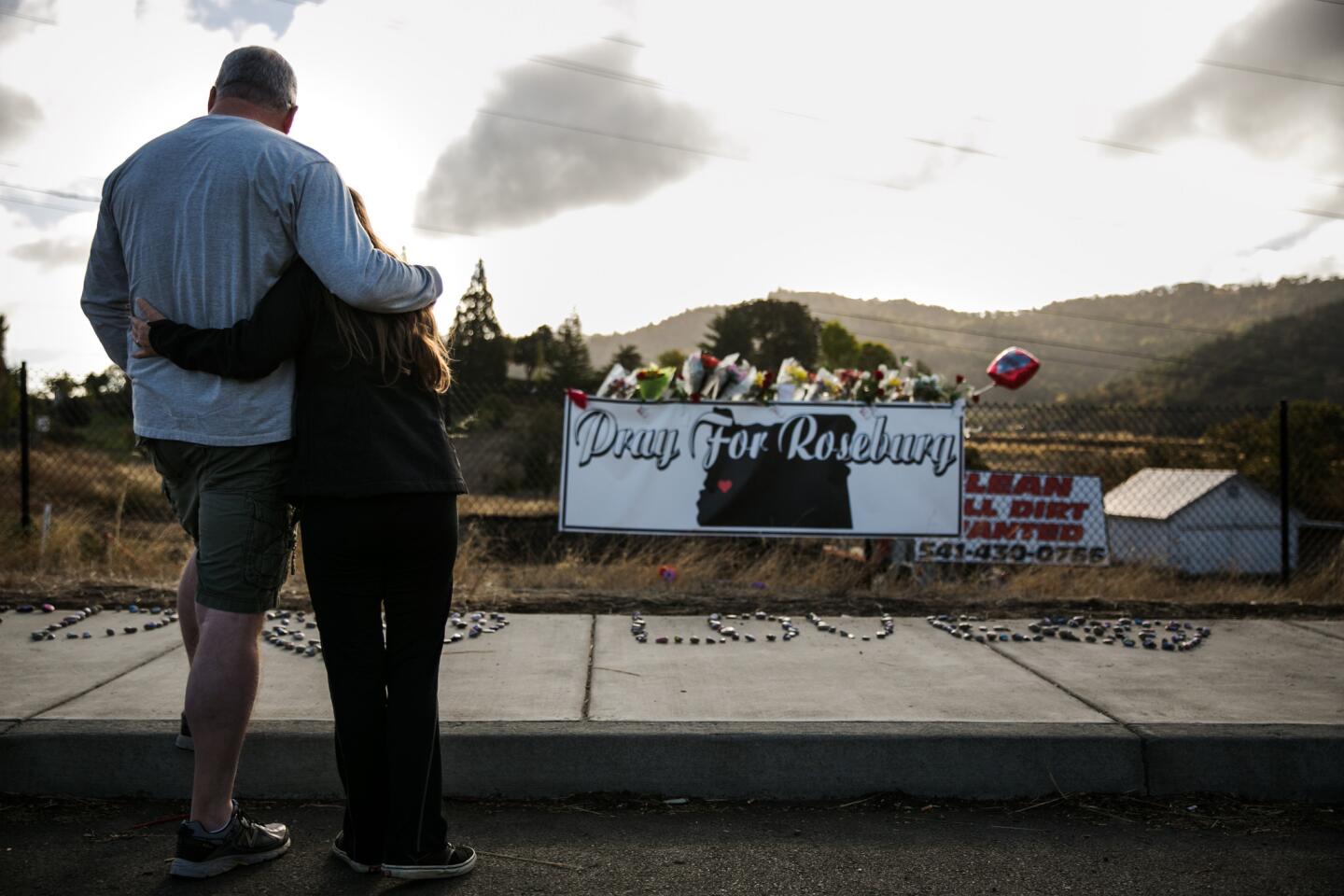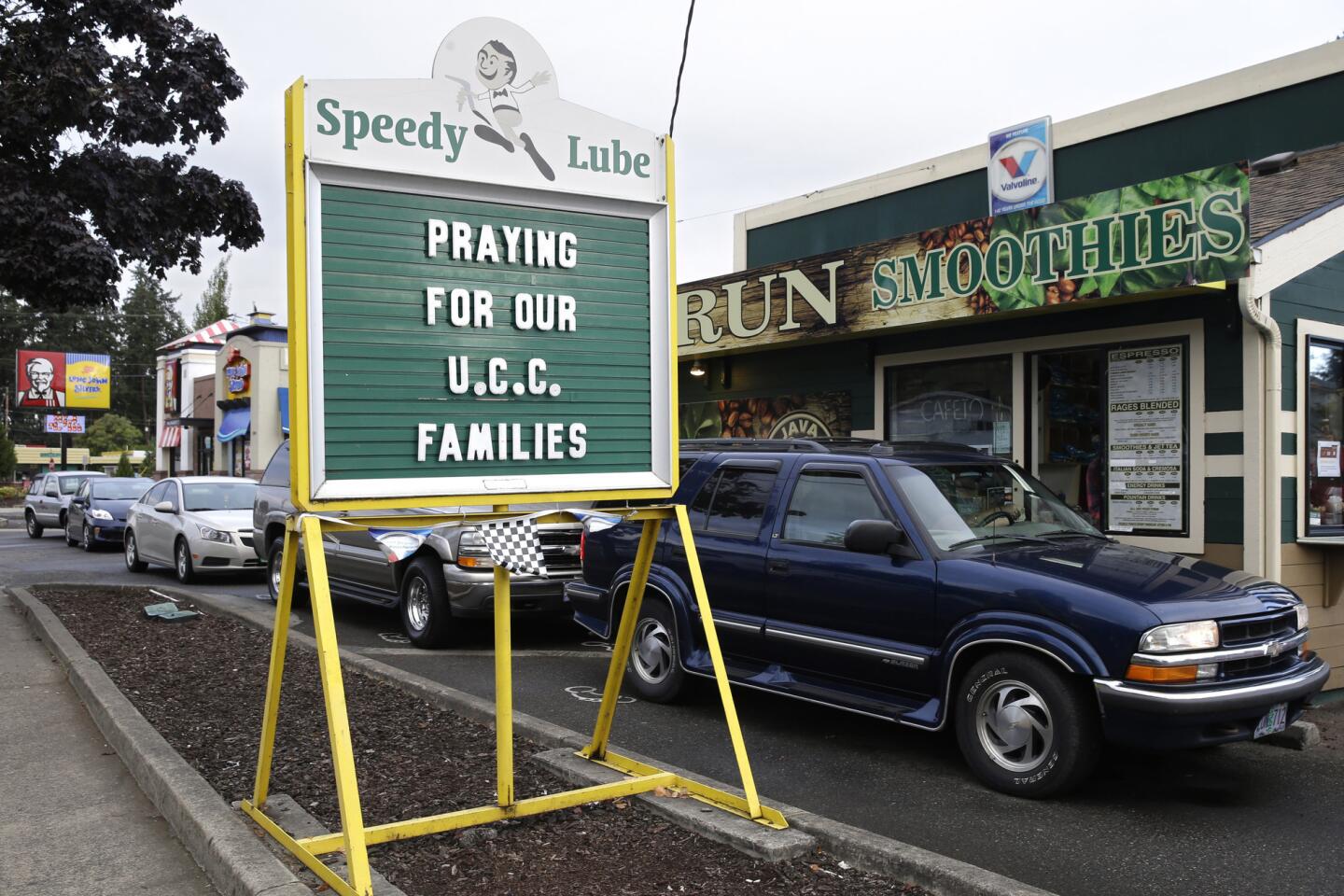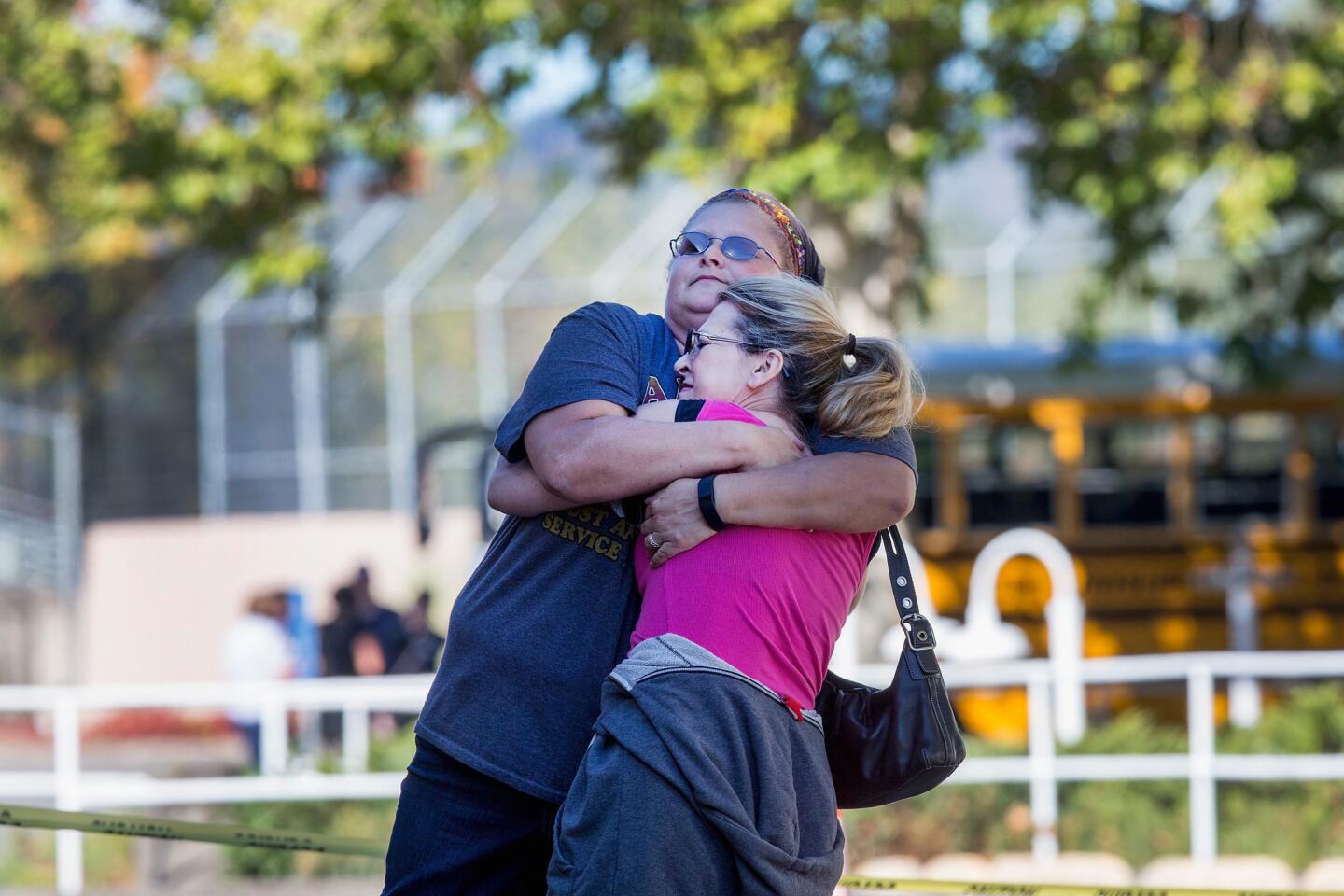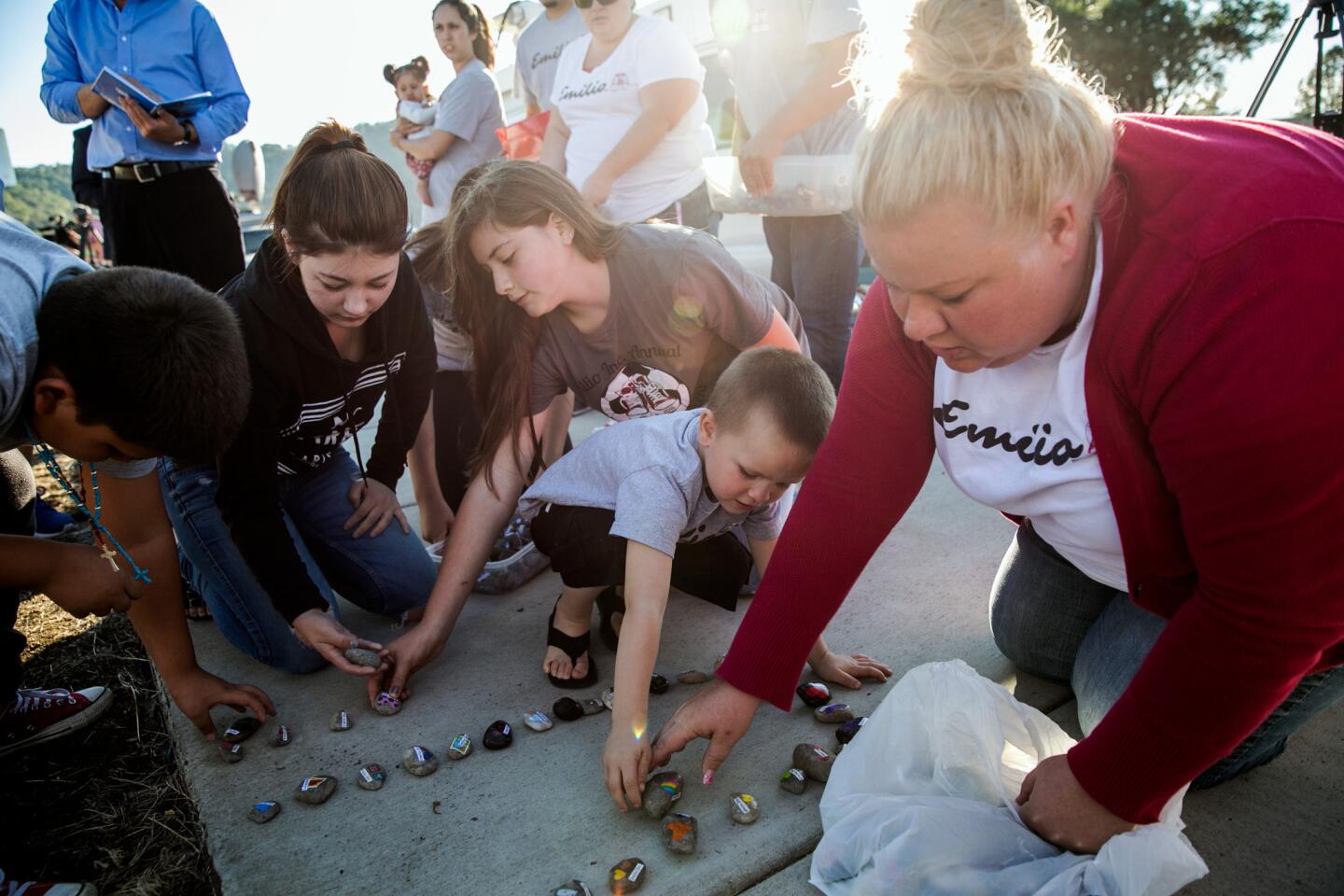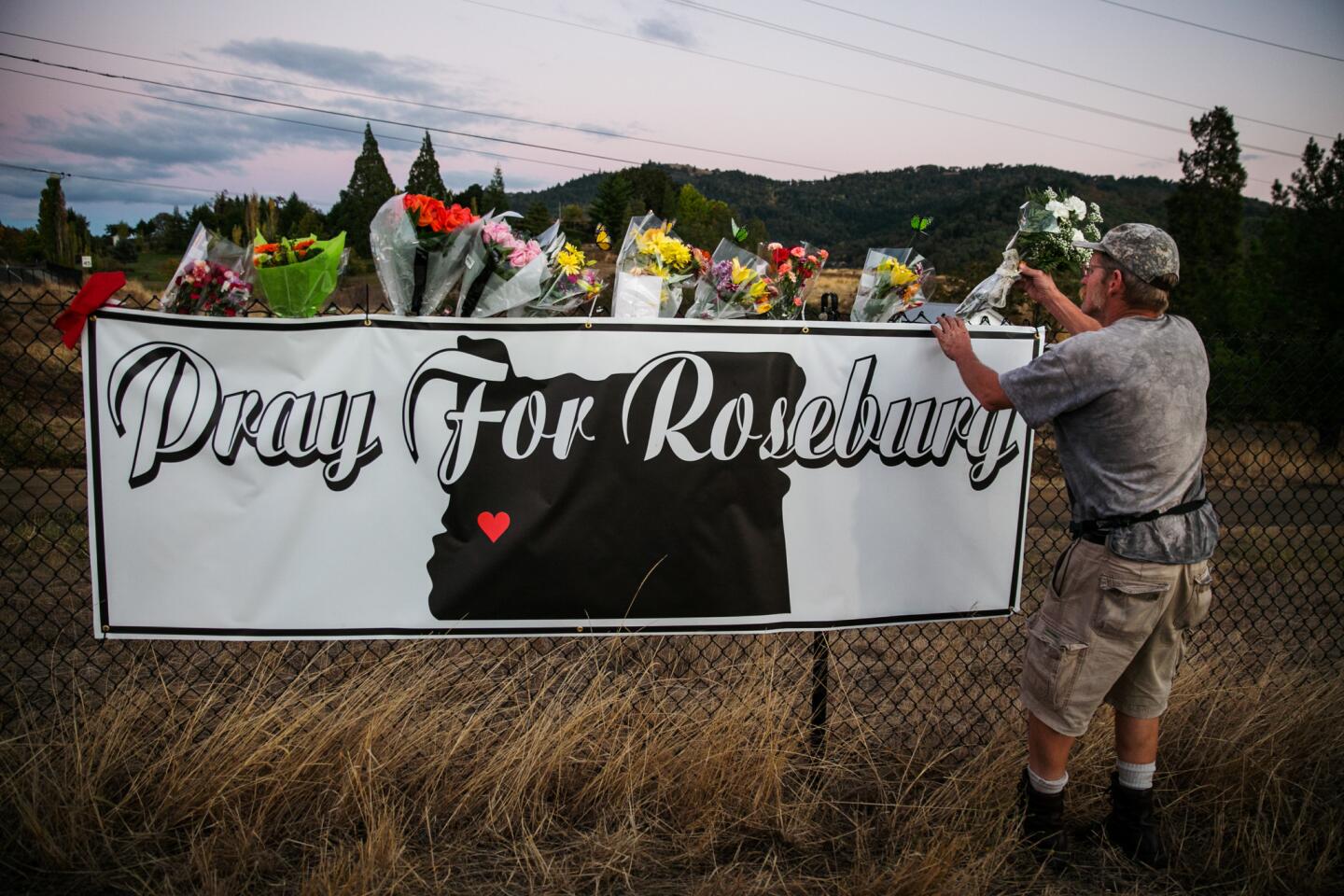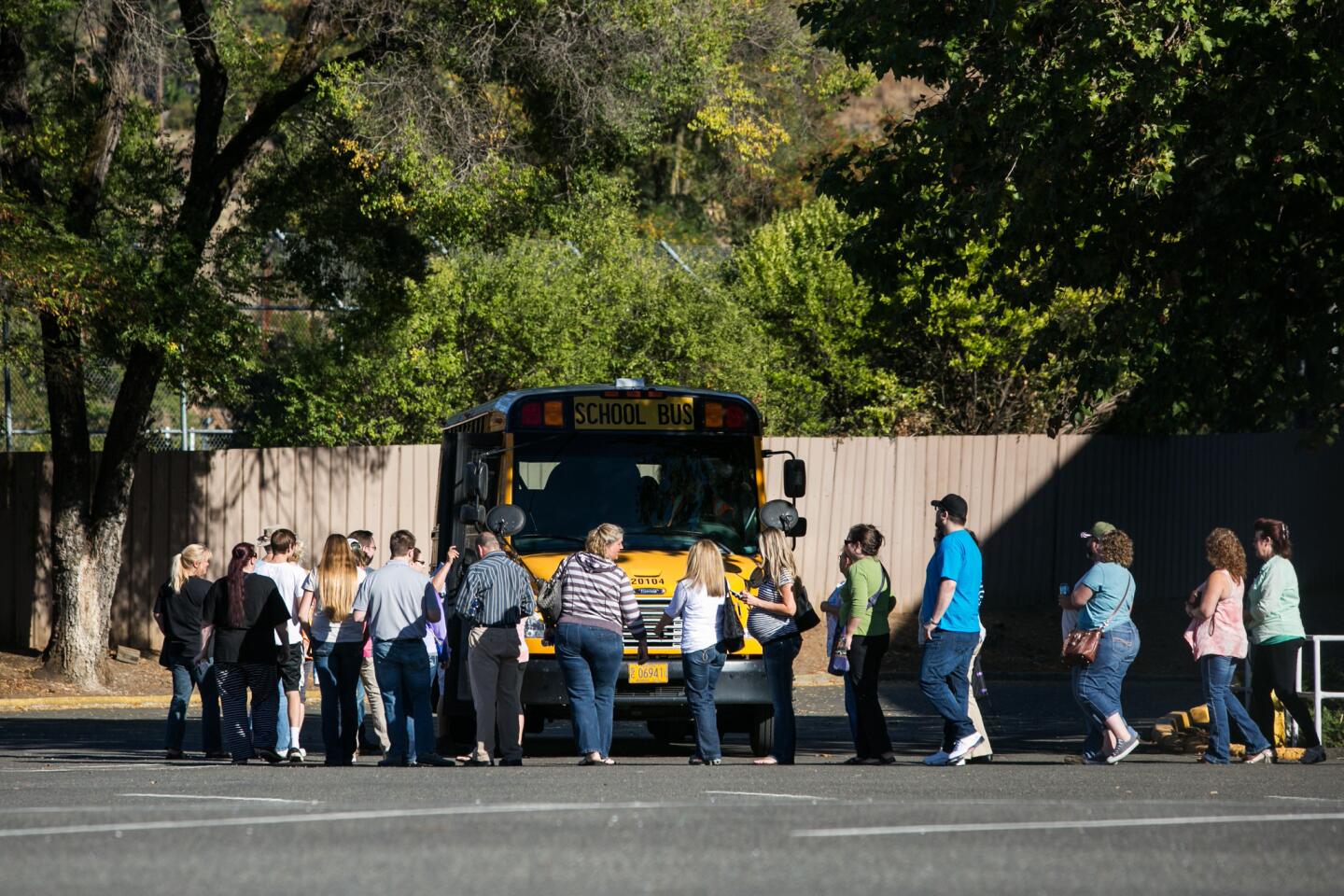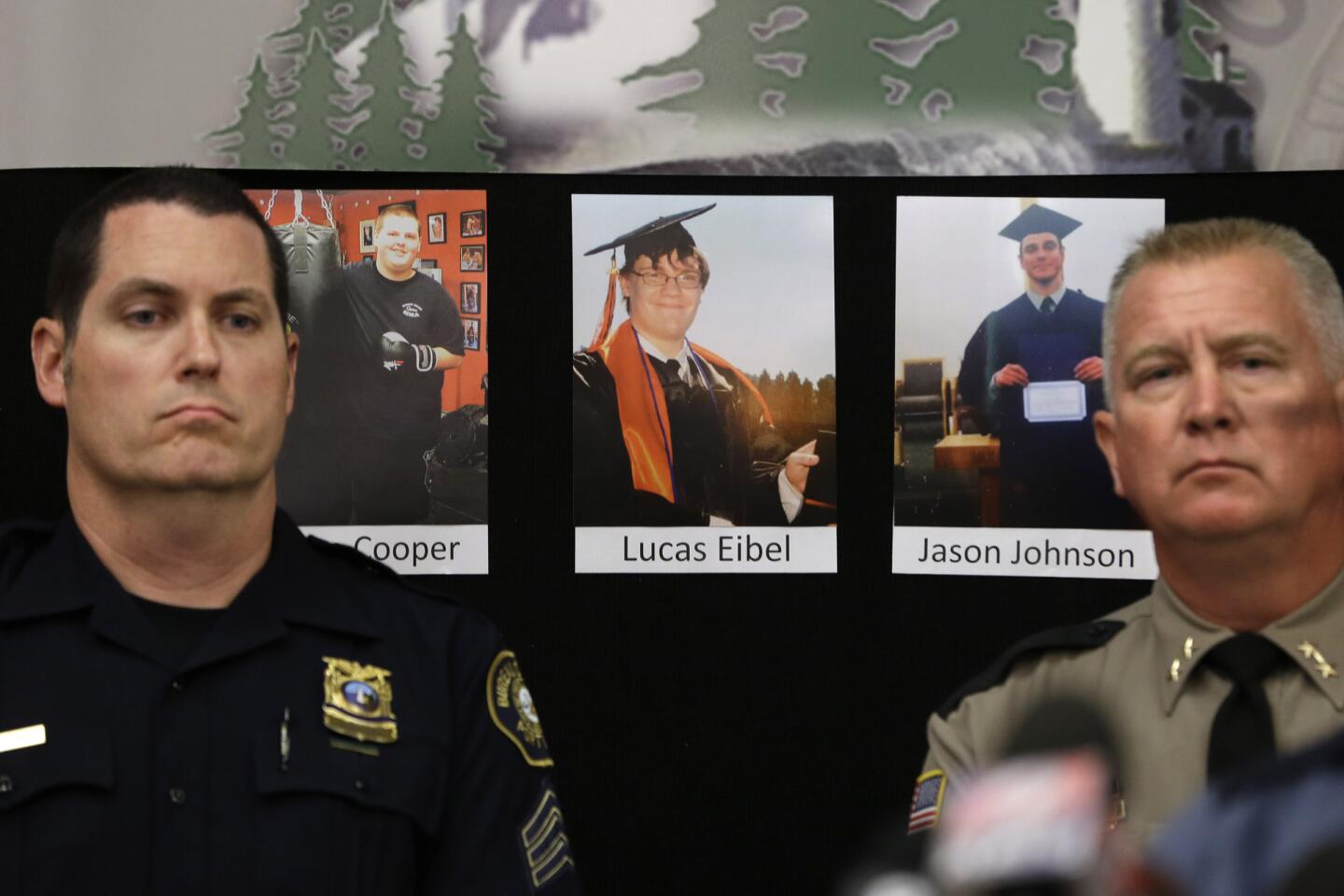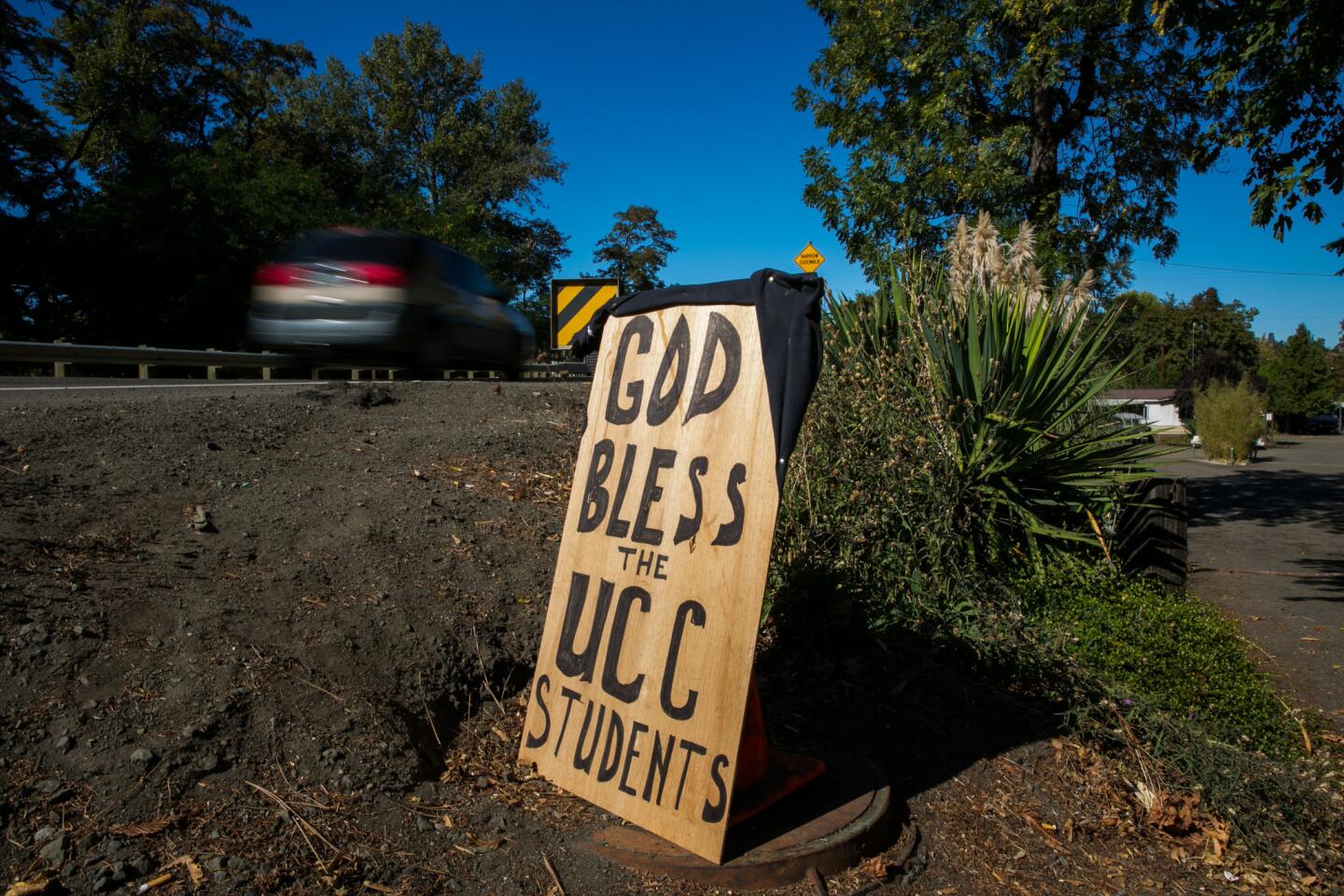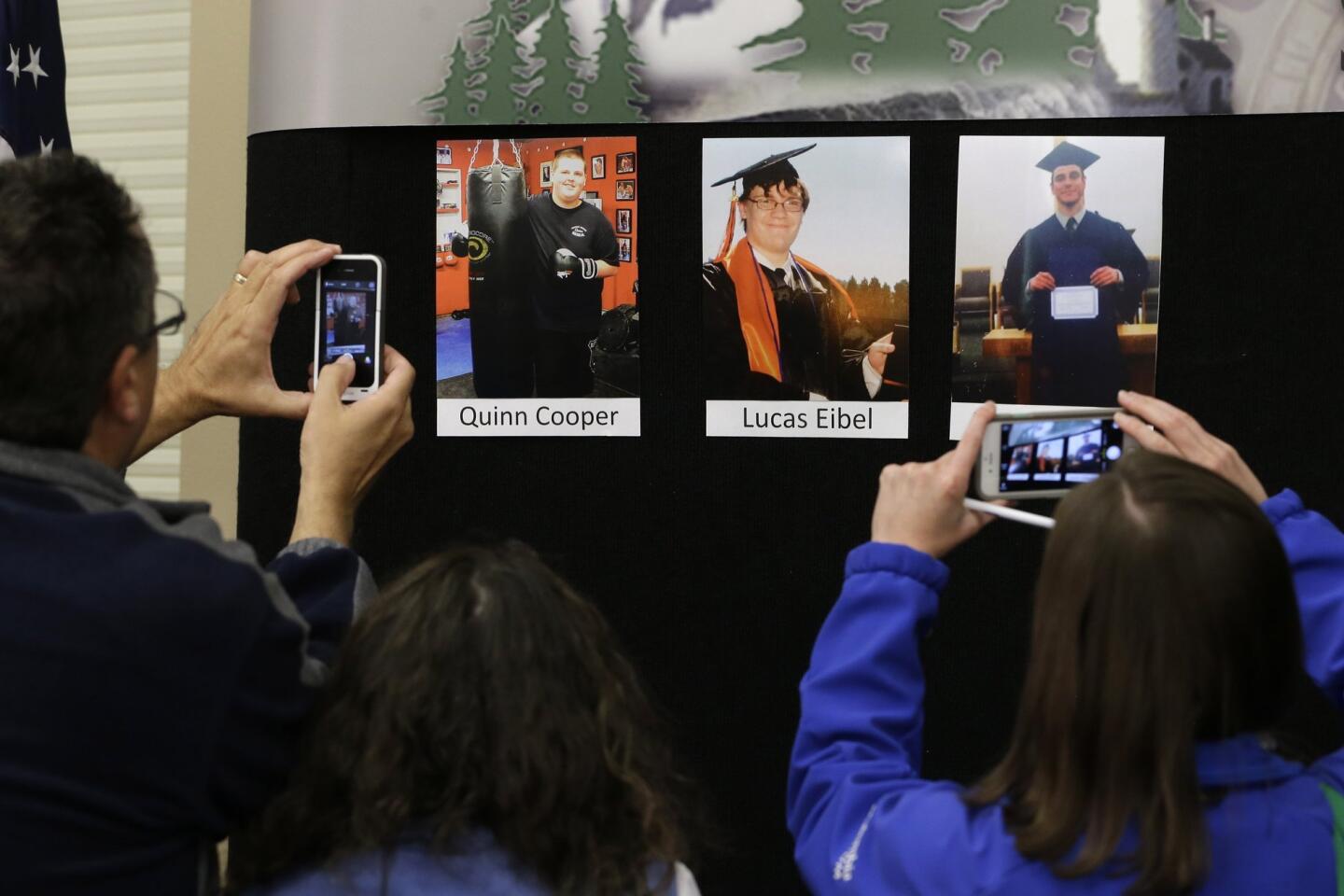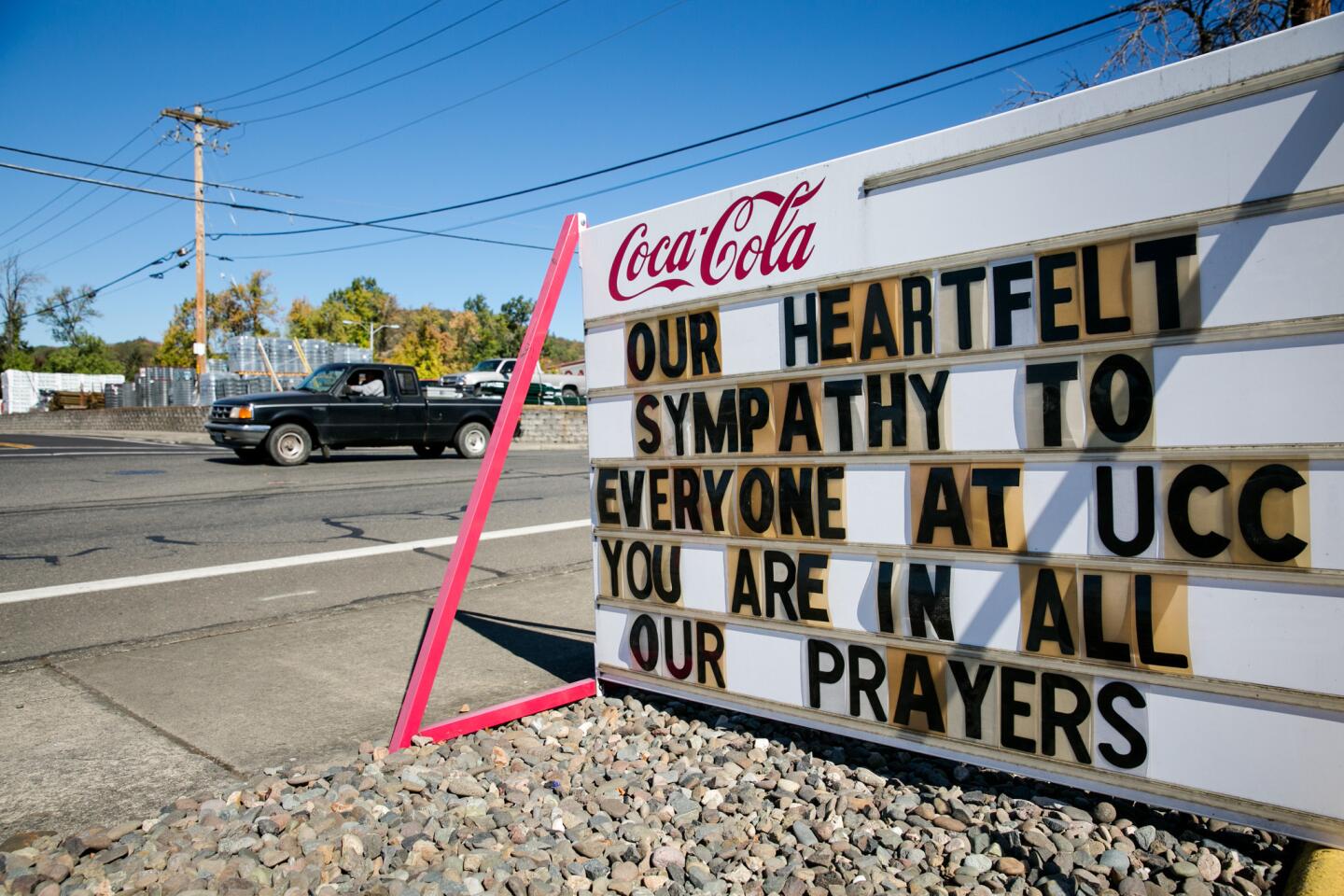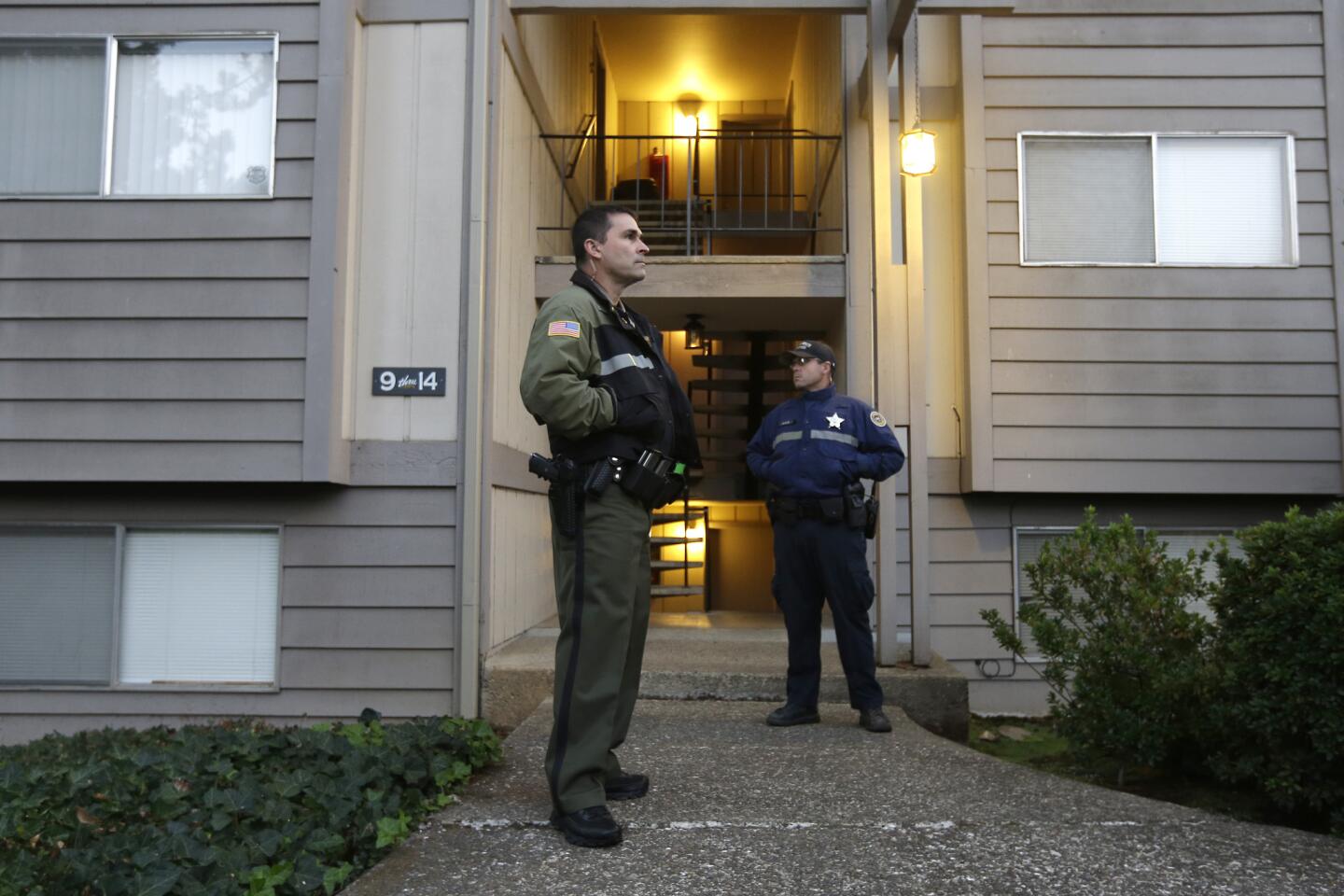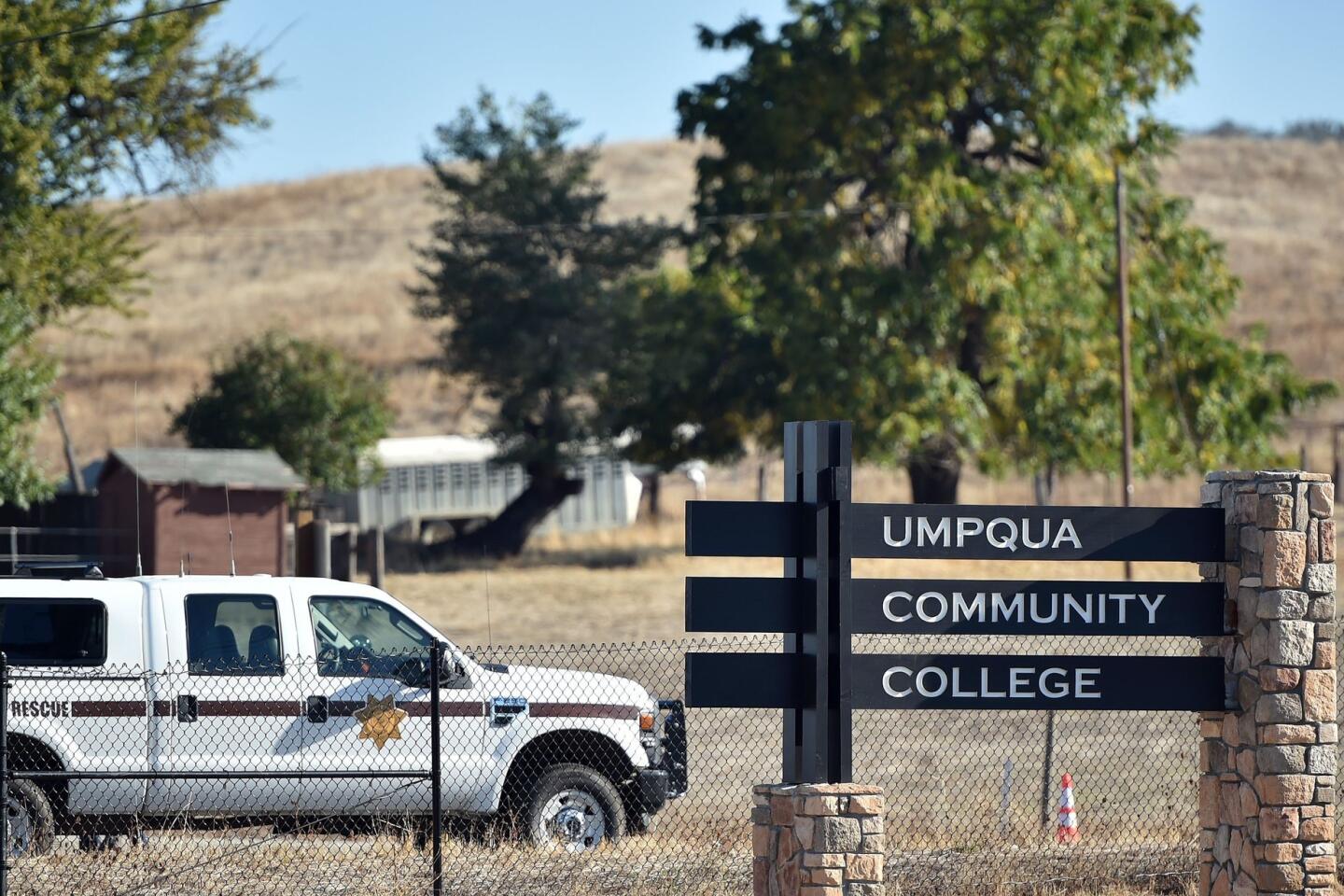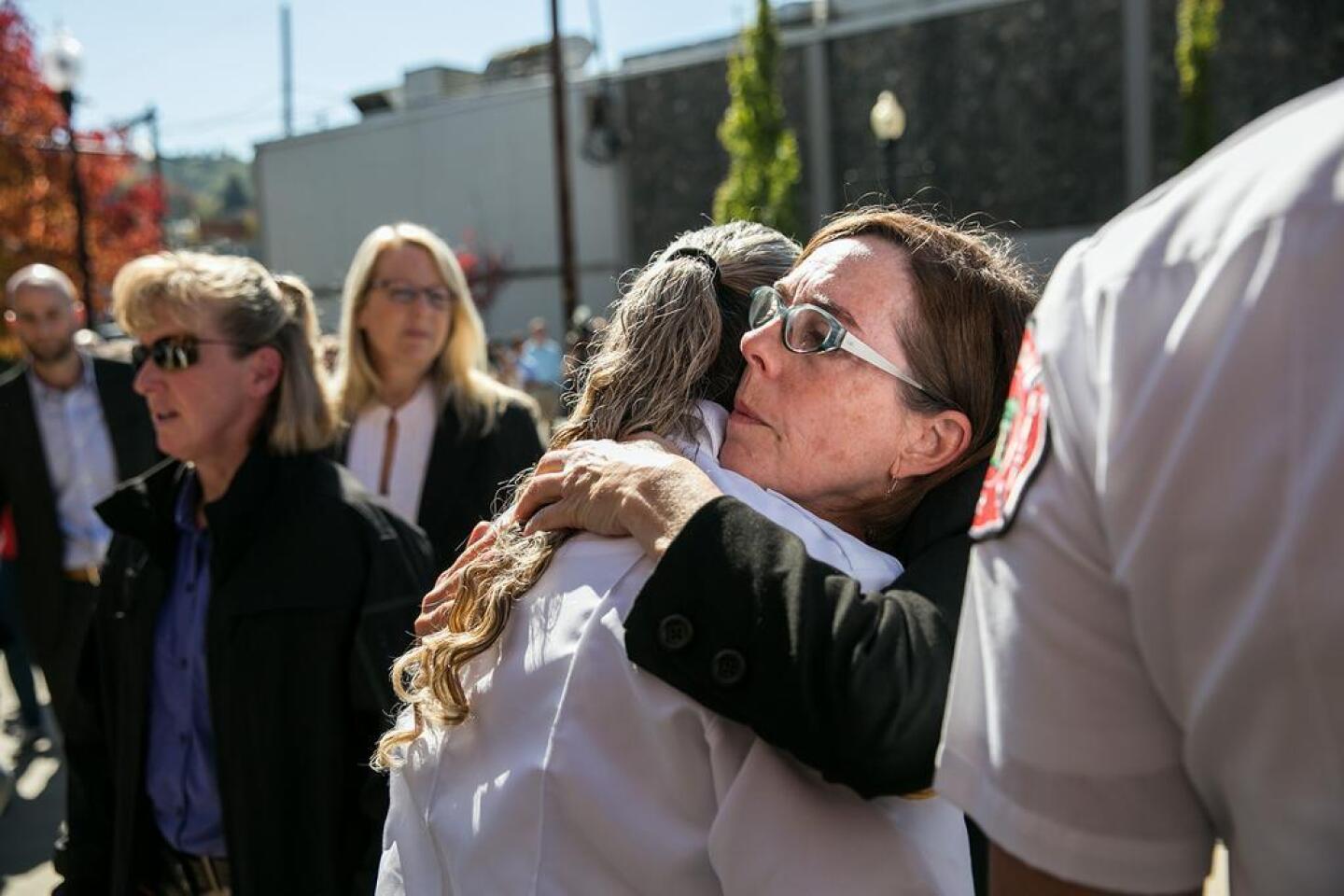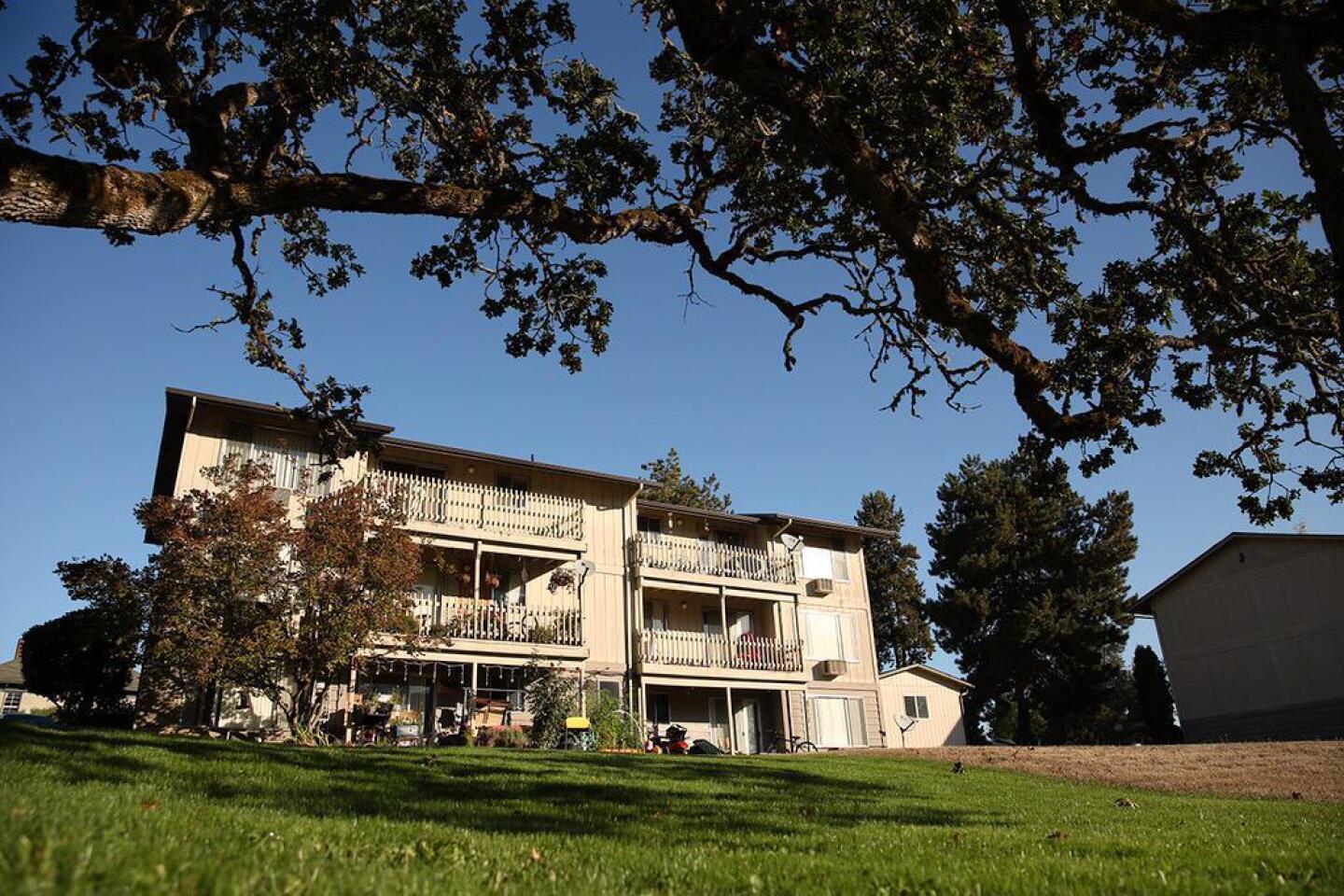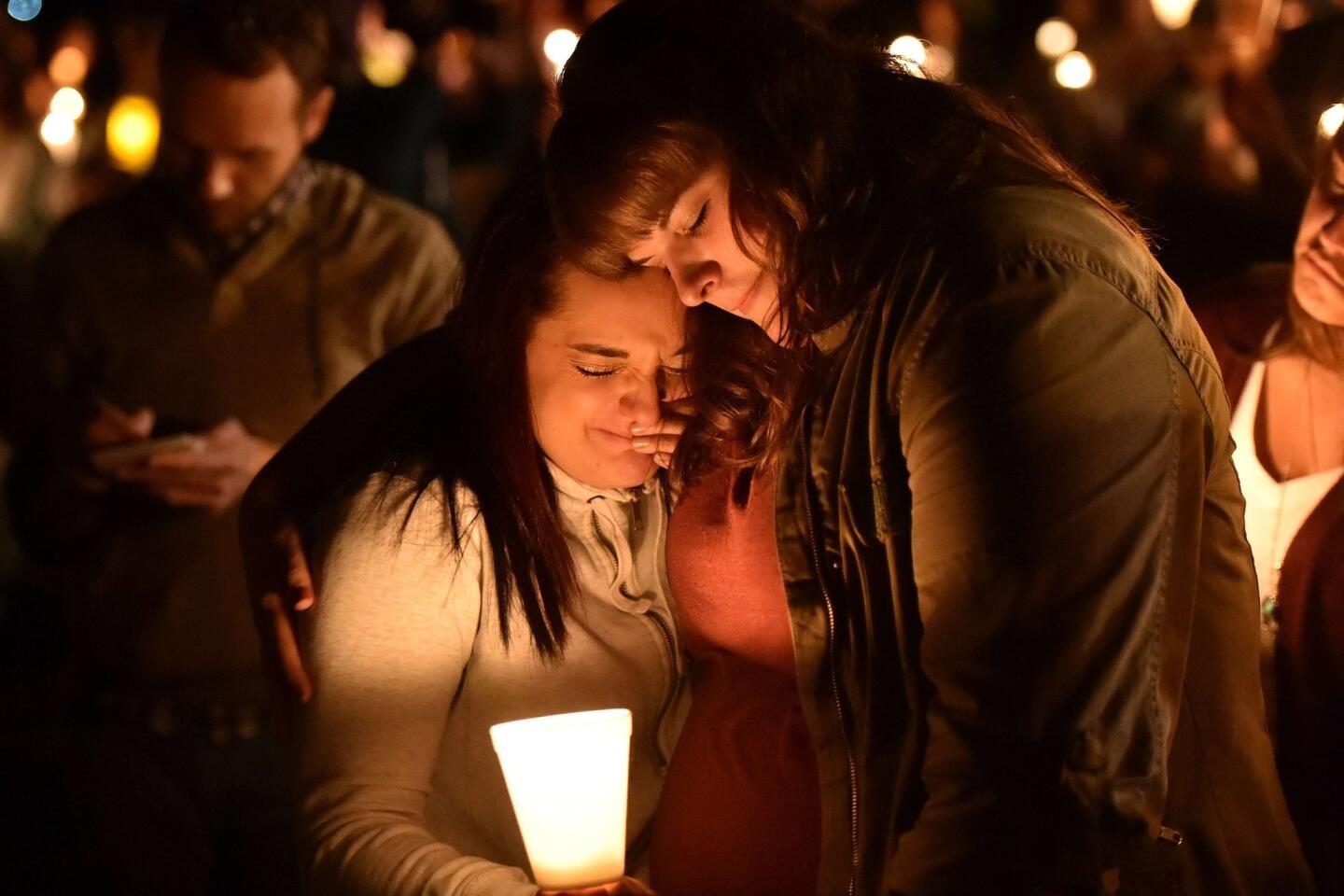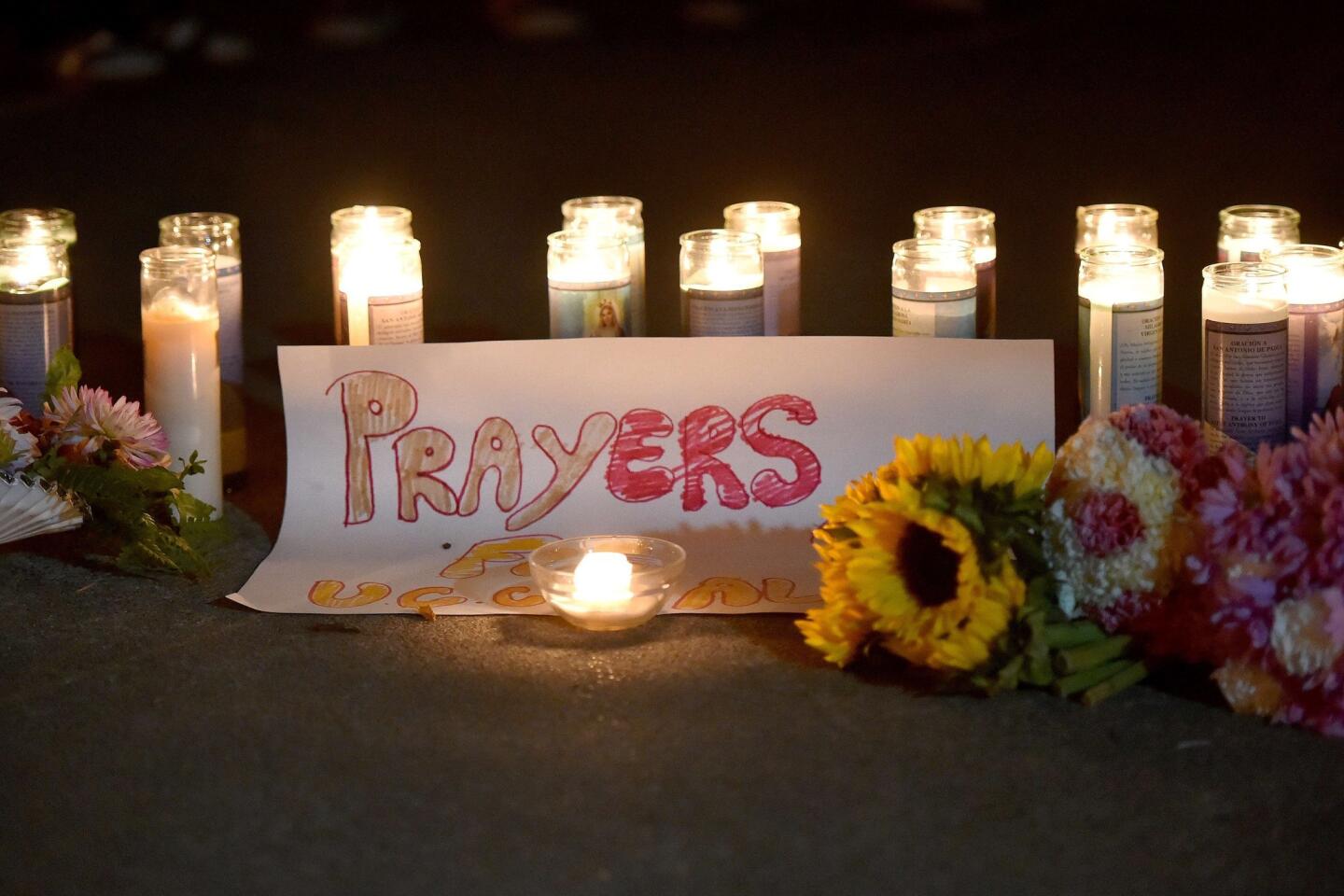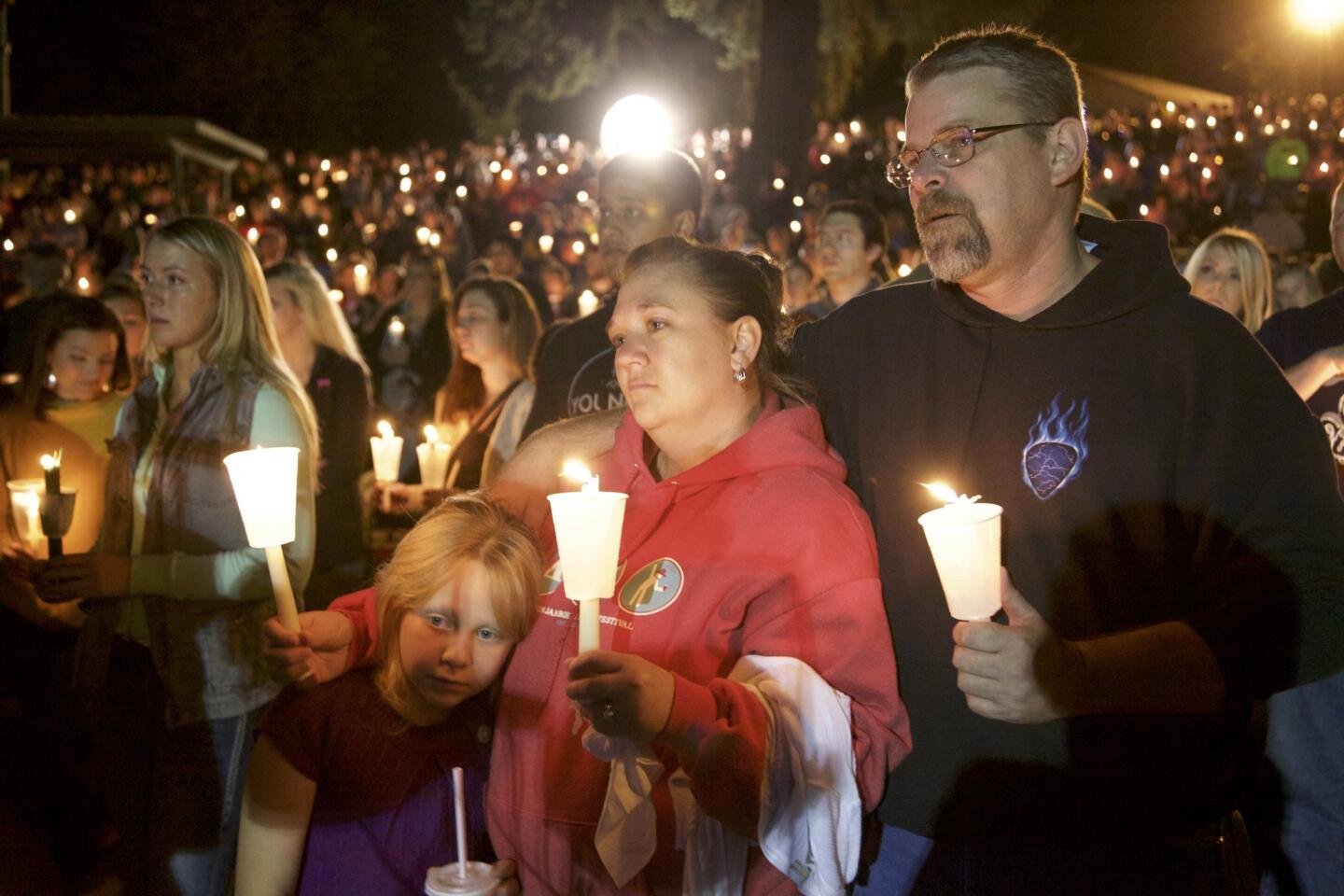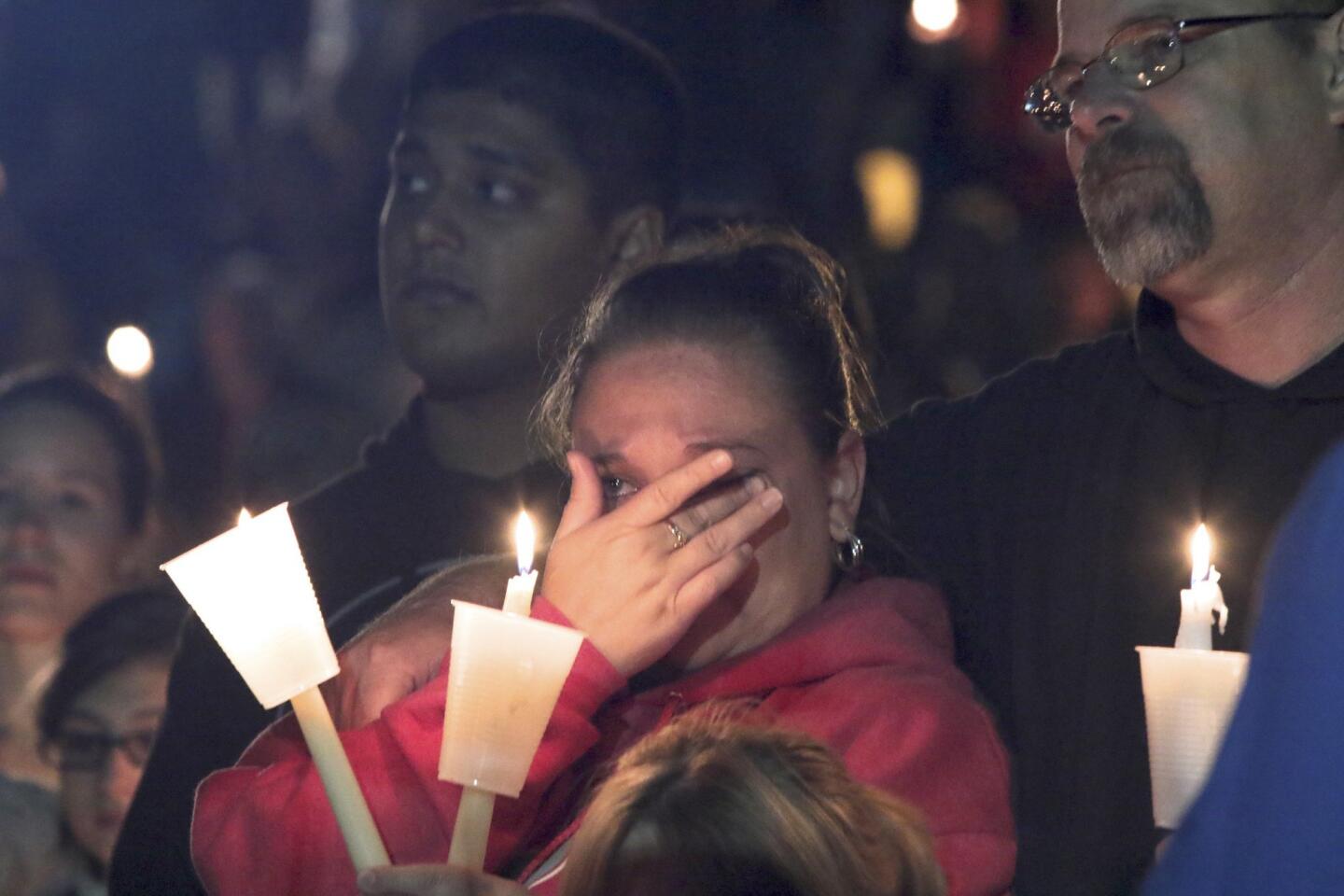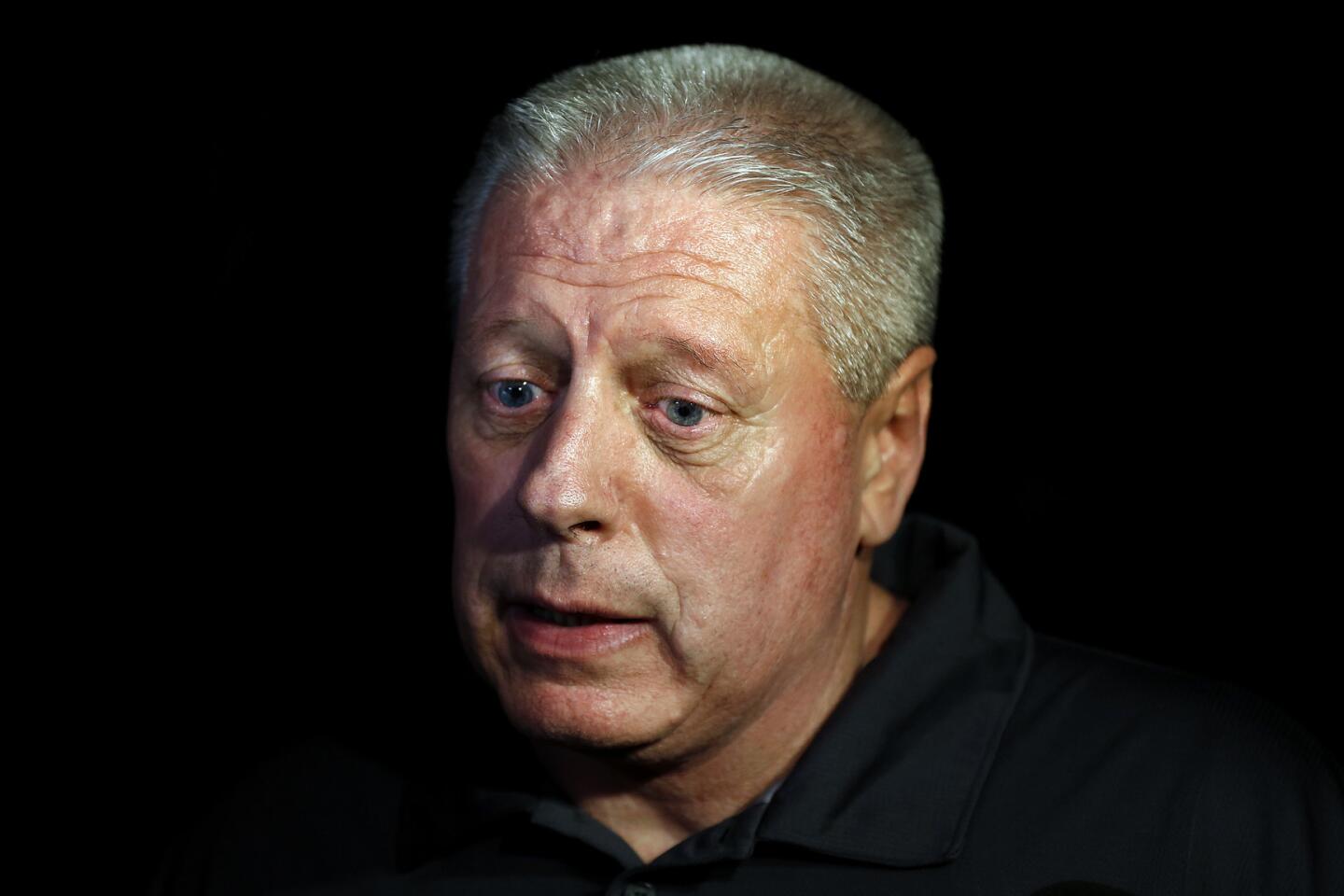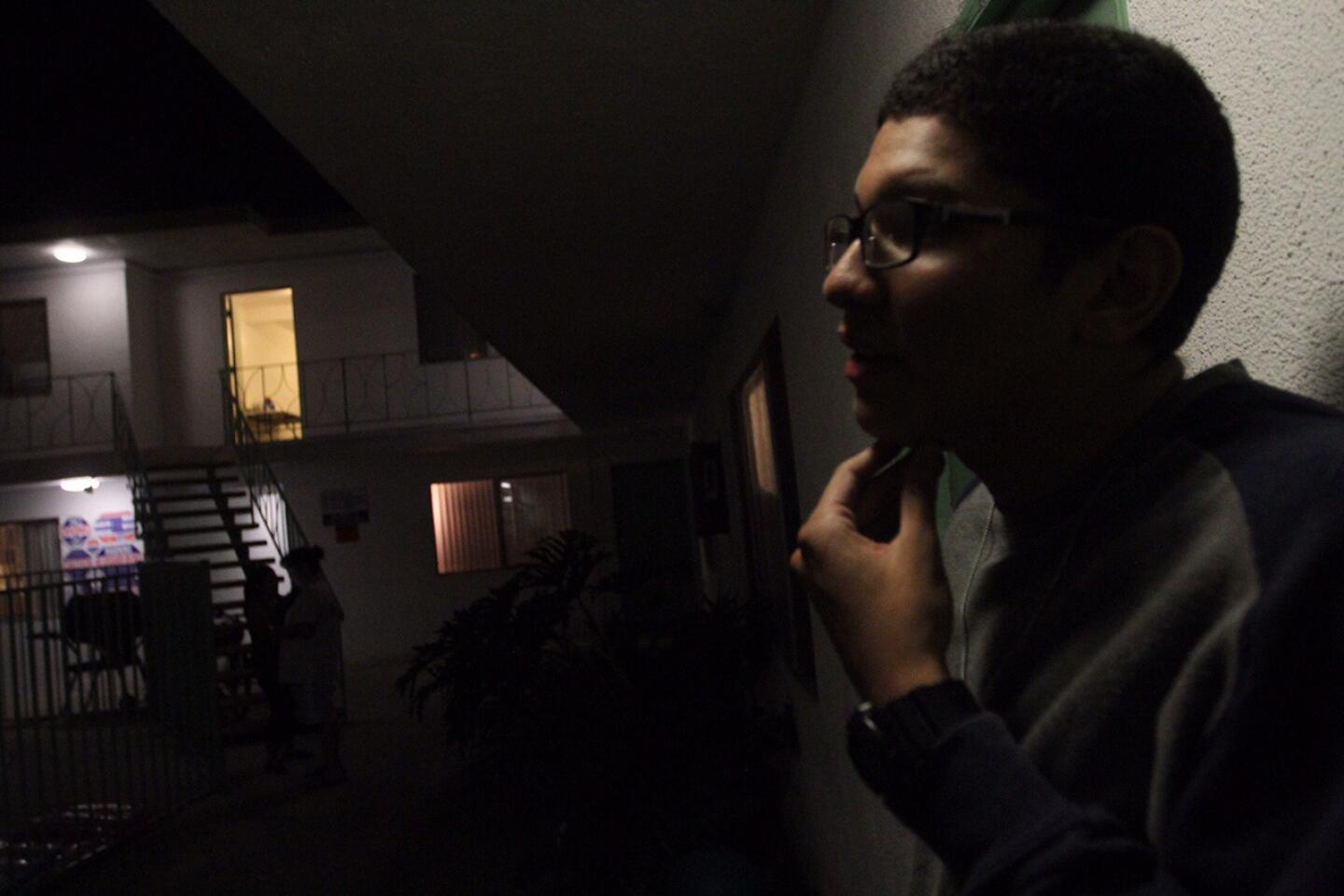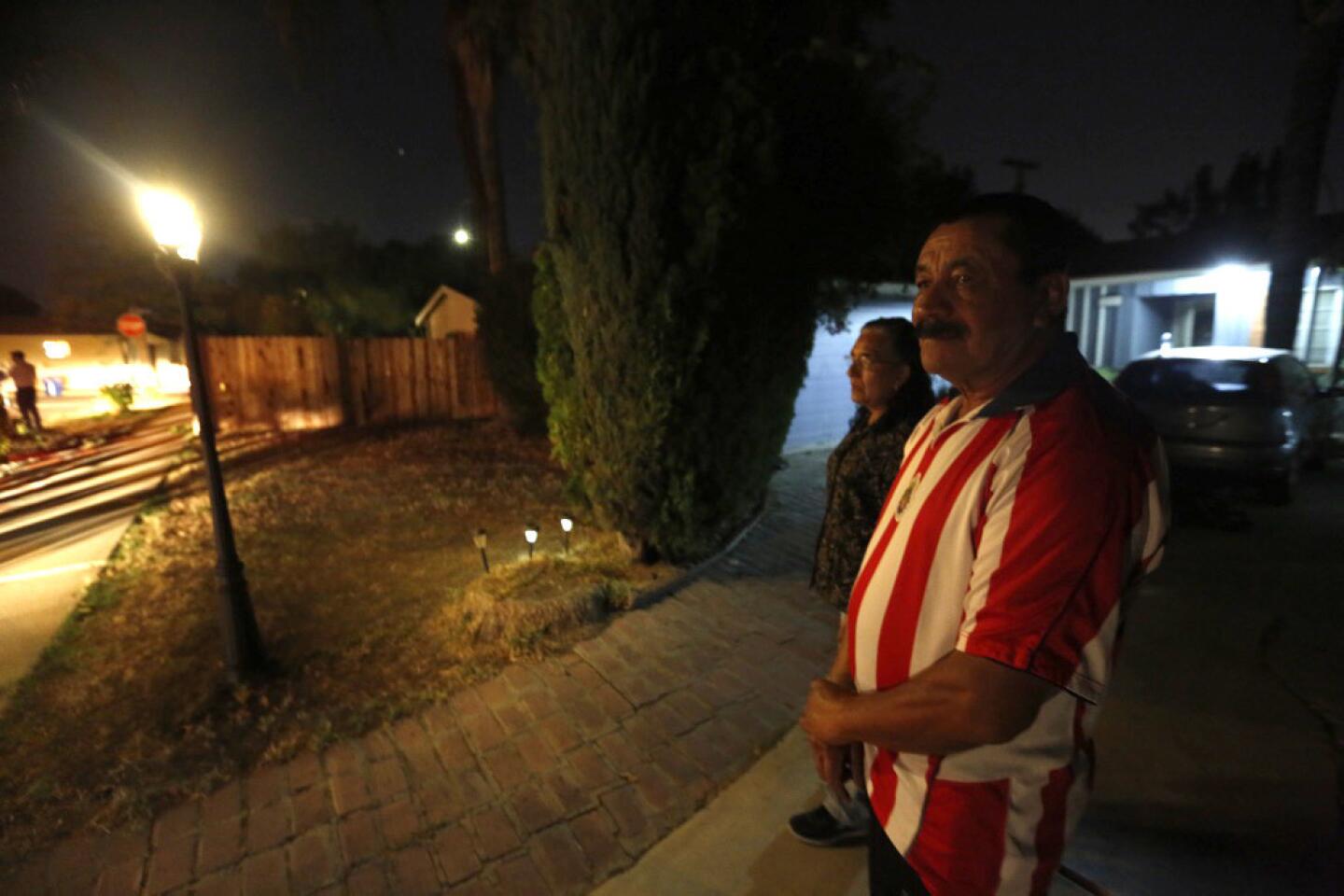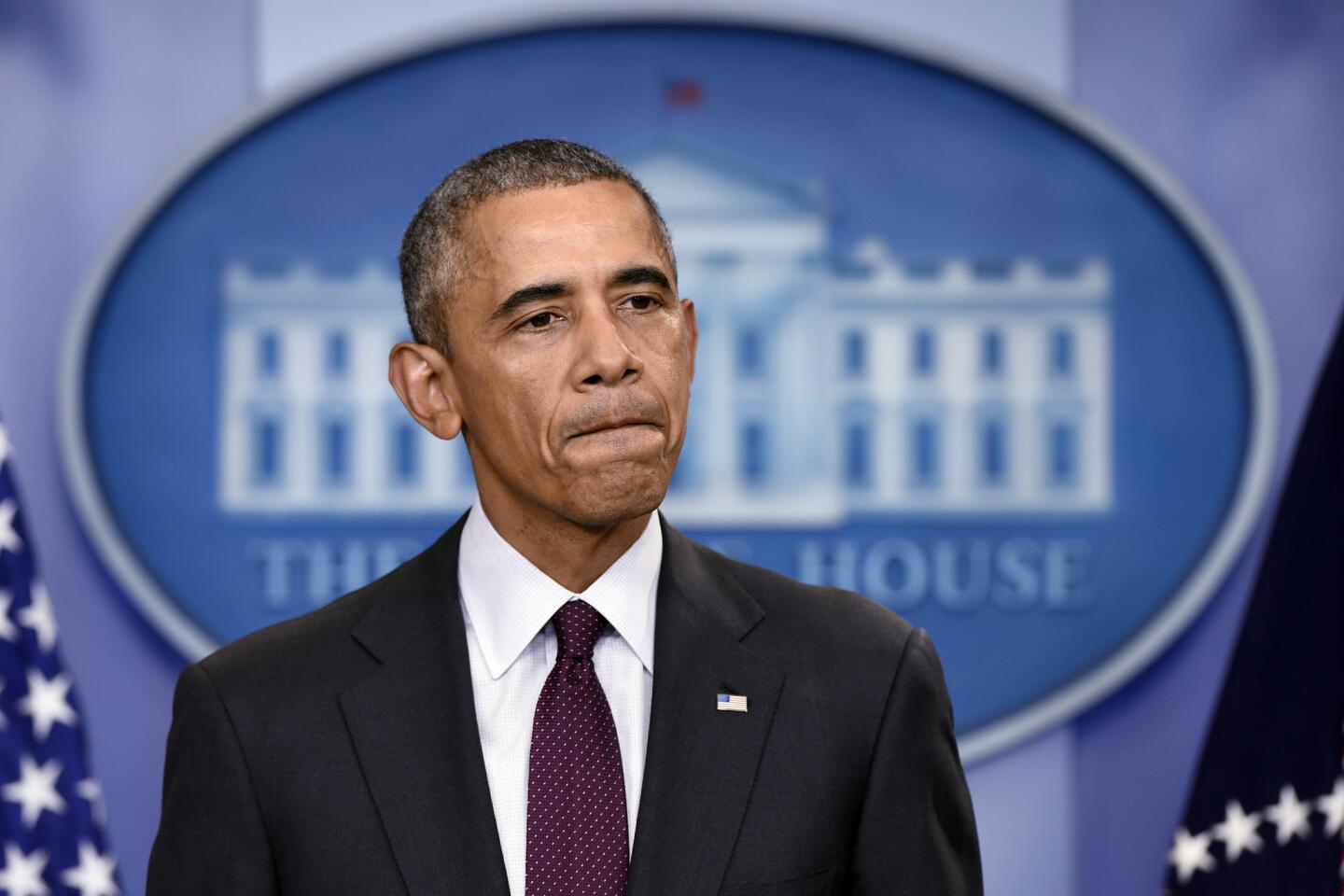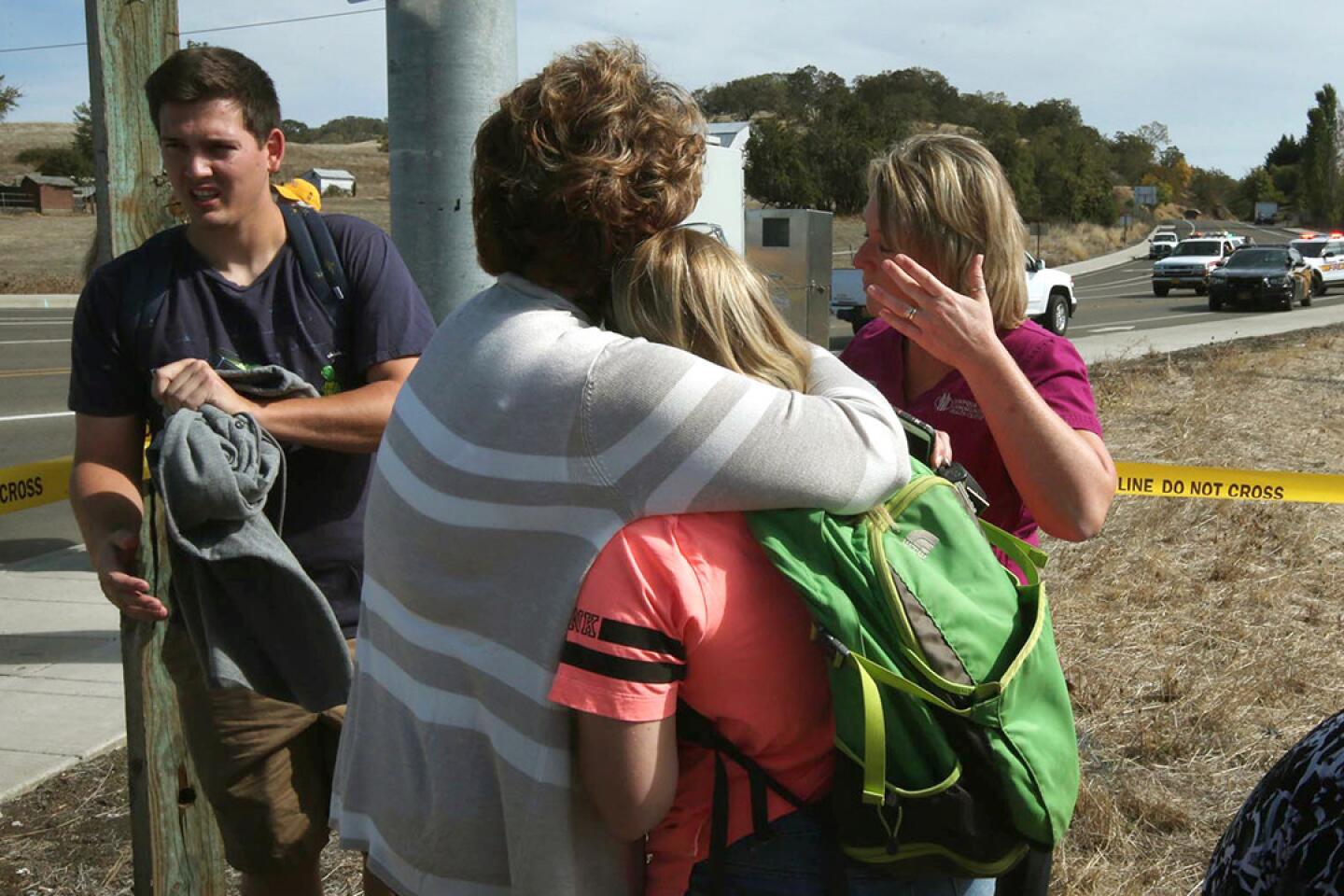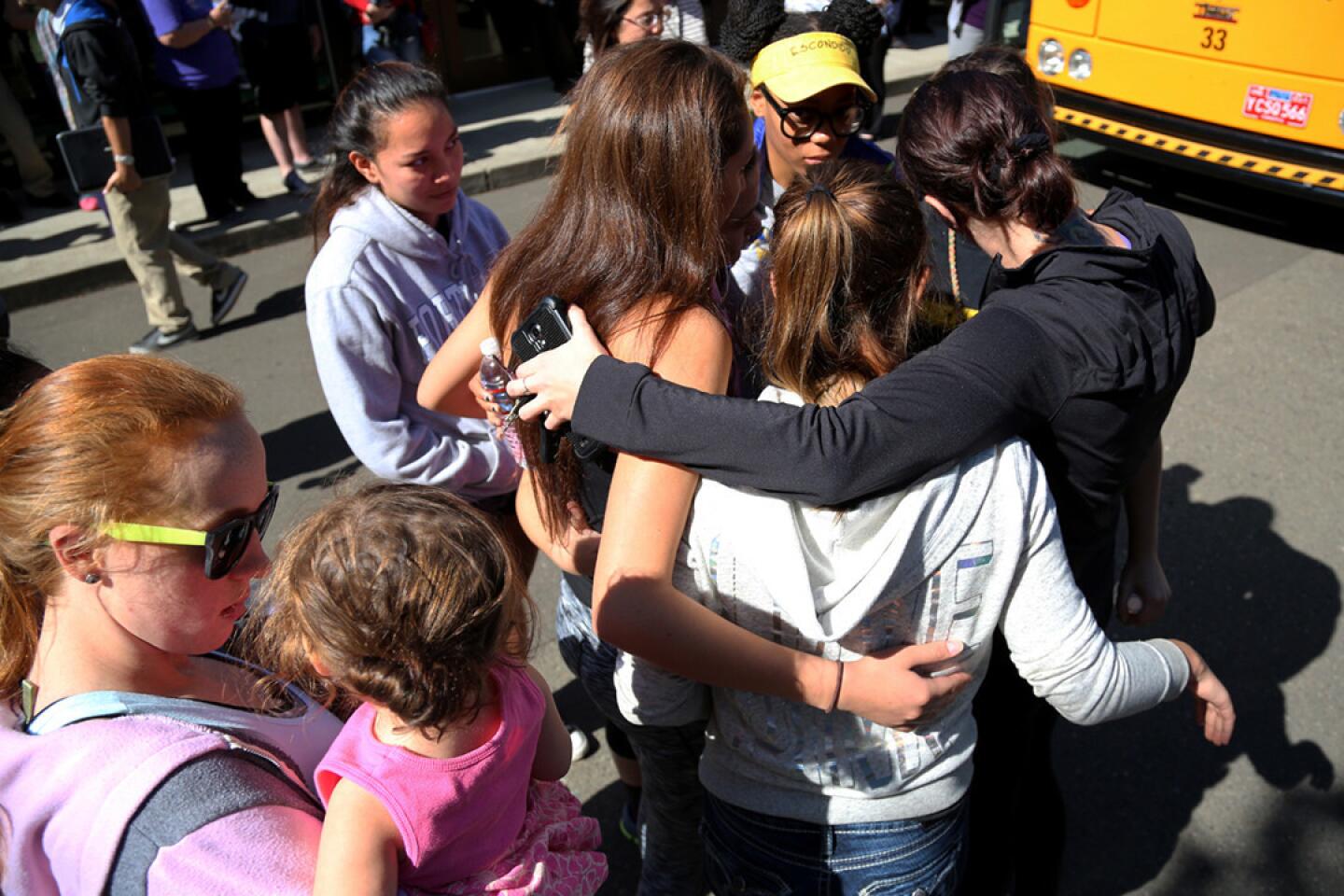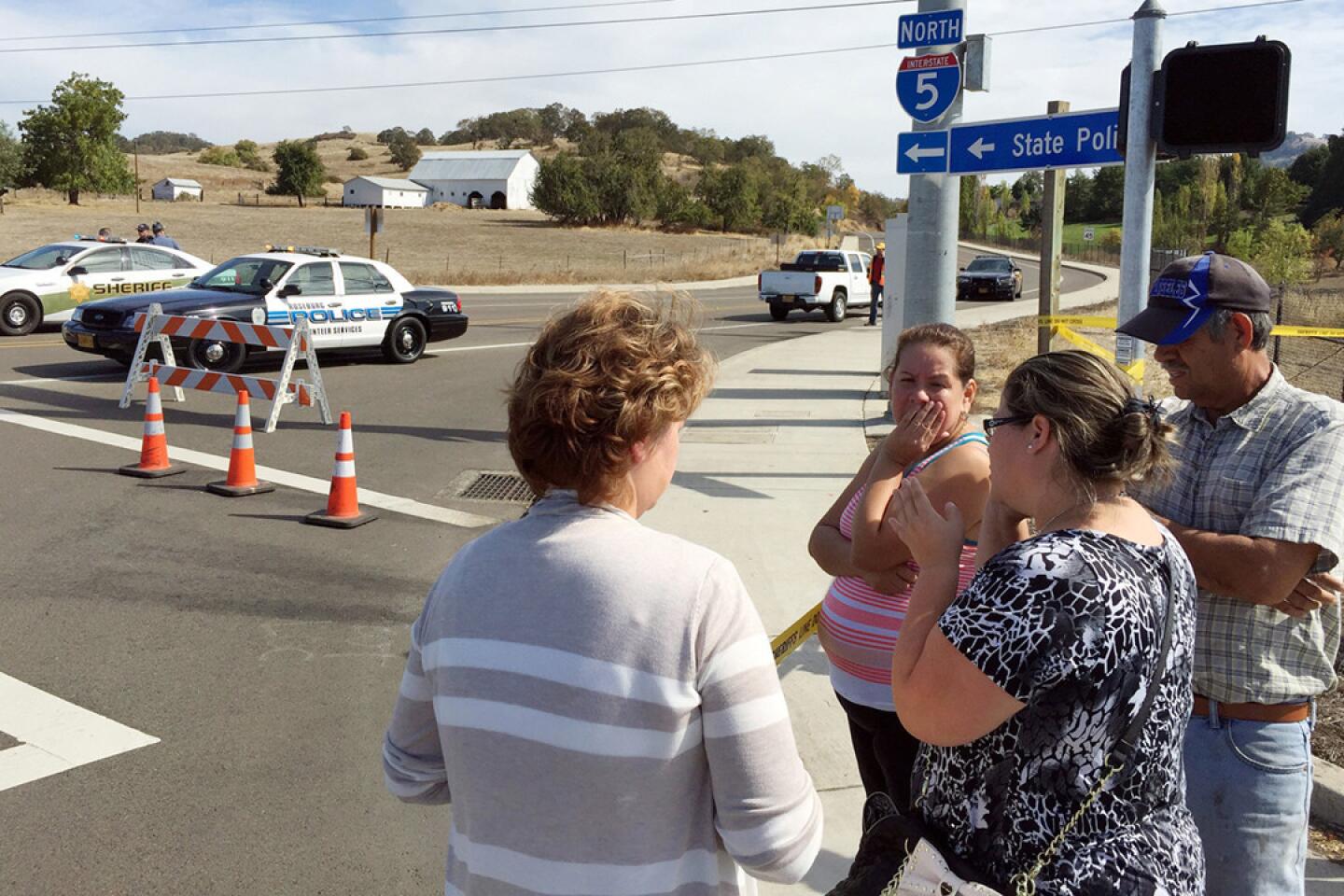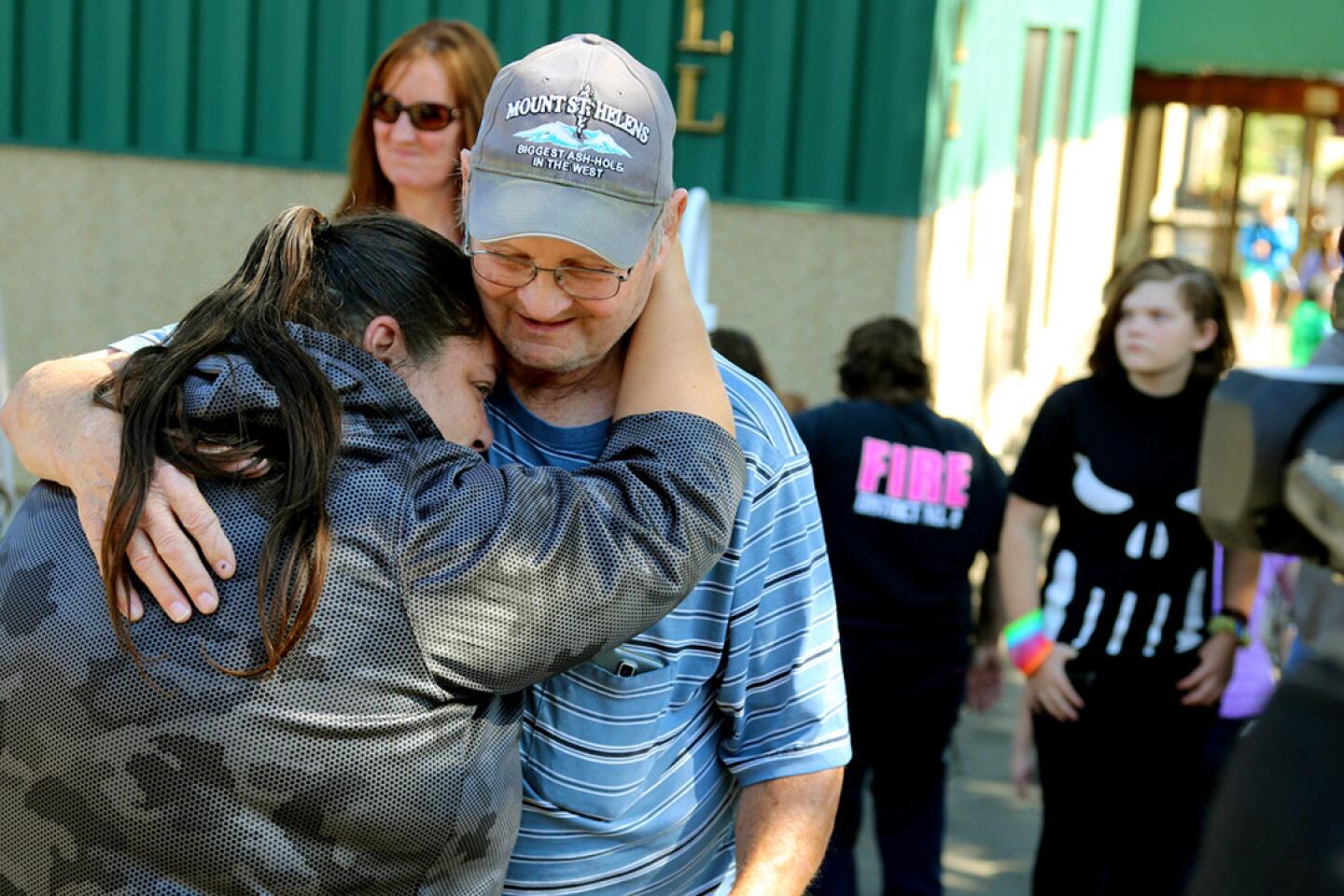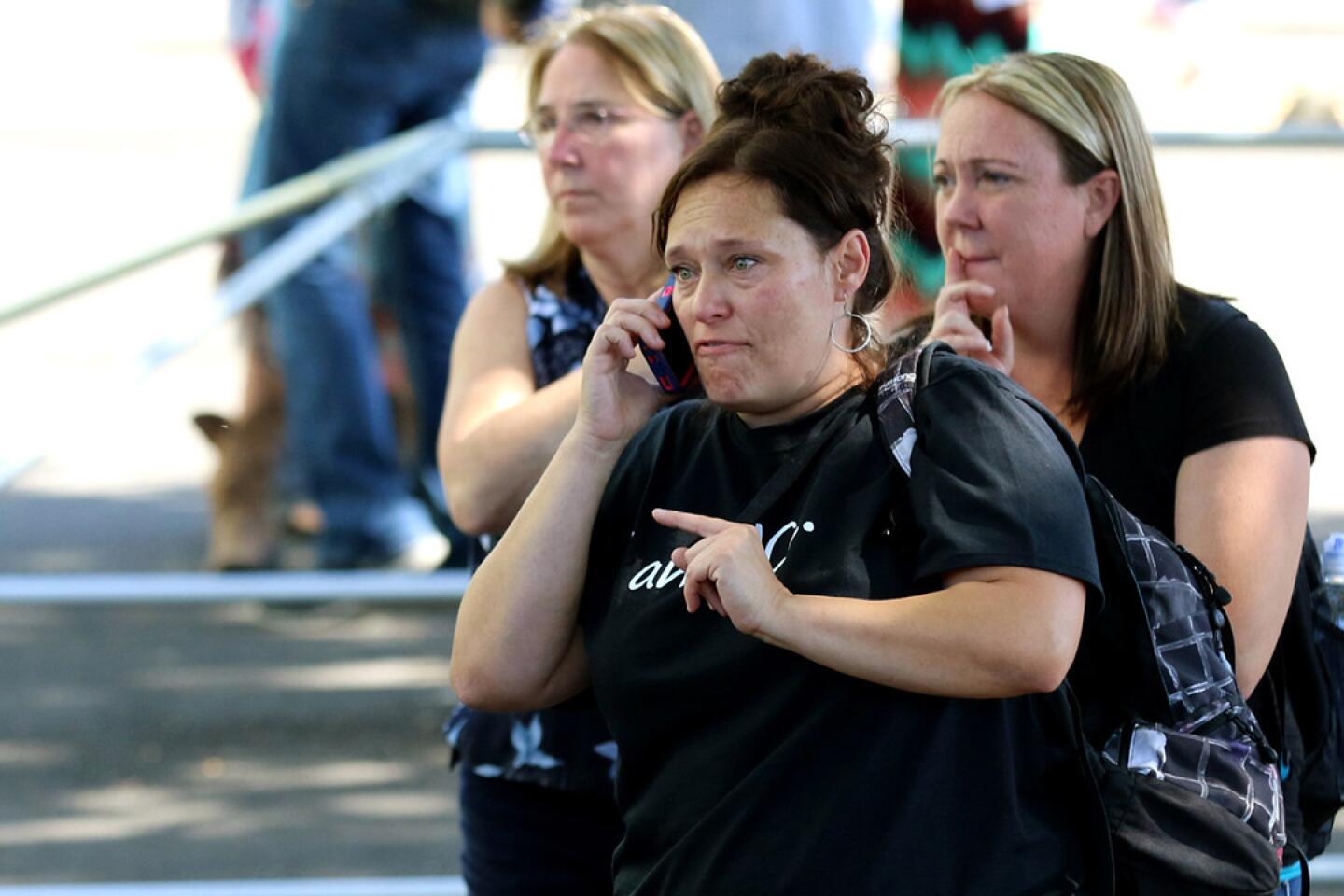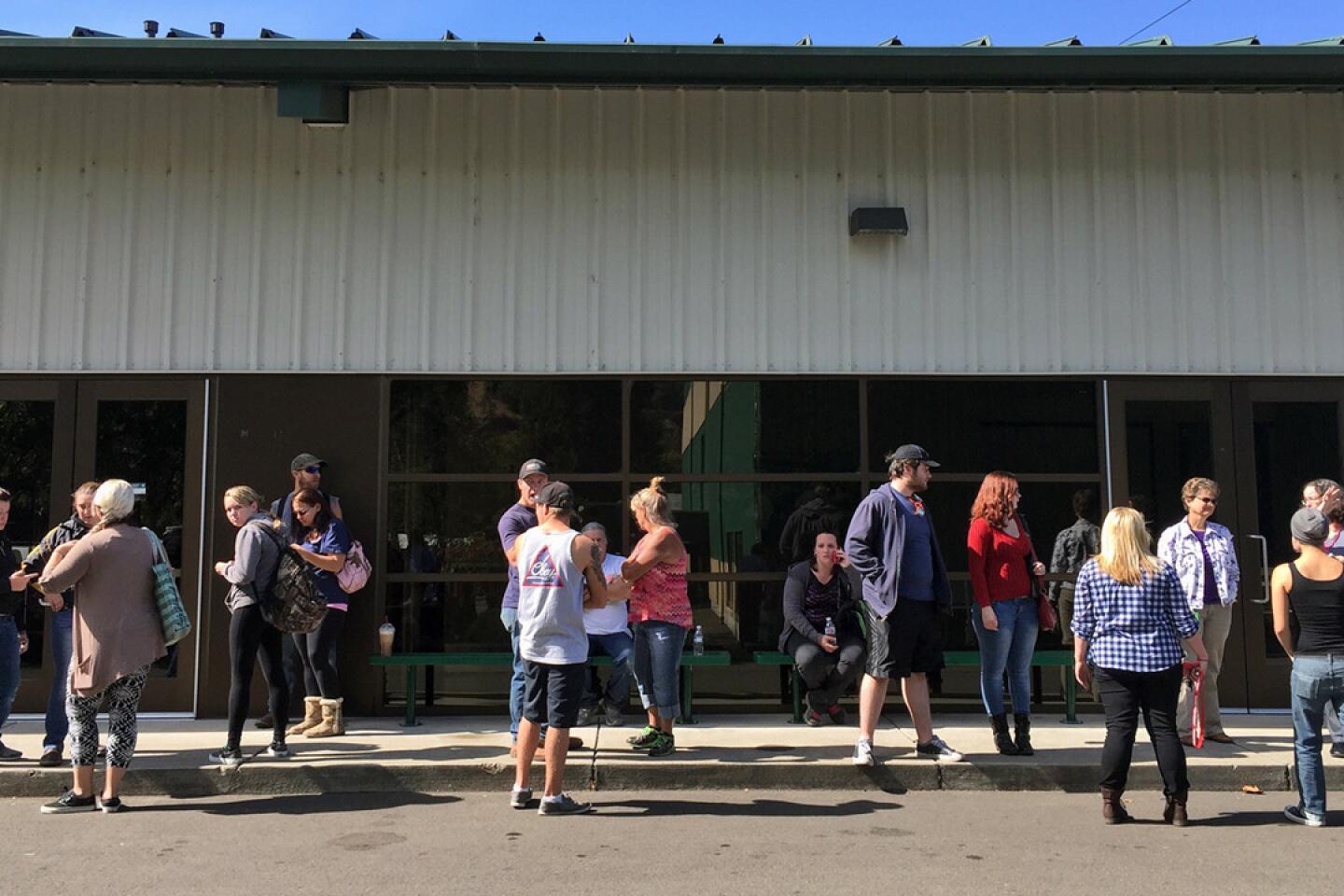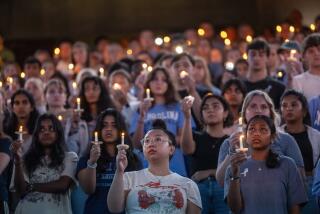Oregon shooting rampage brings rural community college into the spotlight
- Share via
Umpqua Community College, the Southern Oregon site of Thursday’s mass shooting, is a rural, two-year commuter school with a wine institute and a specialty in distance learning.
The school enrolls about 3,000 students, with about 15,000 taking one or more classes each year, according to the school. There are about 57 full-time and 152 part-time faculty, according to the federal National Center for Education Statistics.
Umpqua specializes in distance education and career training, and is home to the Southern Oregon Wine Institute, established in 2008 as the “first viticulture and enology program in Oregon outside of the Willamette Valley,” according to its website.
In one of the worst mass shootings in recent decades, a gunman opened fire in a classroom Thursday morning, killing 10 people and wounding several others, authorities said.
The gunman died in a shootout with police, they said. A law enforcement official, speaking on condition of anonymity because the case is still under investigation, identified the shooter as Chris Harper Mercer, 26. His motive was “not immediately clear,” the official said.
Fall classes began Monday at the school, about 180 miles south of Portland
The school, about six miles north of Roseburg in a traditional timber community, first offered classes in rented facilities in 1961. Land along the North Umpqua River for a campus was donated in 1965. The community college district was established in 1964.
Umpqua has faced recent budget challenges, including a $1-million shortfall, controversy over staff layoffs and enrollment declines due to a strengthening job market, according to the News-Review, a local Roseburg paper.
Former college president Joe Olson retired in June.
According to the most recent campus profile, about 58% of students are women and 42% men. About 82% of students are white, 7% Hispanic, 2% American Indian/Alaska Native, and 1% black and Asian.
The campus is a traditional commuter school, offering no on-campus housing.
Annual in-state tuition was about $4,000 in 2014-15, according to NCES data.
Few crimes were reported by the school from 2011 through 2013, according to federal data. There was one aggravated assault in 2013 and five burglaries, but no reports of illegal weapons possessions, robberies or sexual assaults. More recent data was unavailable.
English and science classes are held at Snyder Hall, reportedly where the shooting was centered, at the southeast corner of the campus. It is one of about 16 buildings that make up the complex.
Umpqua Community College was part of a 2014 White House initiative in which colleges committed to improving access and providing incentives to stay in school, especially for low-income and minority students.
The college launched a tuition-free scholars program and initiatives to help adult learners complete their high school diplomas and begin college-level classes.
A joint statement by the Assn. of Community College Trustees and the American Assn. of Community Colleges after Thursday’s shooting made note of the particular vulnerability of community colleges, which traditionally have few criteria for enrollment and take all comers:
“Sadly, these types of occurrences are not unheard of at community colleges,” the statement said. “We are committed to supporting on-campus safety and security measures at our colleges, with a priority emphasis on prevention whenever possible.”
The statement said that open college and university campuses “are susceptible to these types of events.”
U.S. Secretary of Education Arne Duncan pledged that his department would support Umpqua and the Roseburg community:
“Tonight, my thoughts are with the students and families at Umpqua Community College. We have lost bright students and dedicated educators to gun violence in more than 30 school shootings this year alone -- an unconscionable reality of American life,” Duncan said in a statement. “We must do more to keep our students and communities safe, and I pledge the full support of my Department to the Roseburg community during this heartbreaking time.”
Twitter: @carlariveralat
More to Read
Sign up for Essential California
The most important California stories and recommendations in your inbox every morning.
You may occasionally receive promotional content from the Los Angeles Times.
